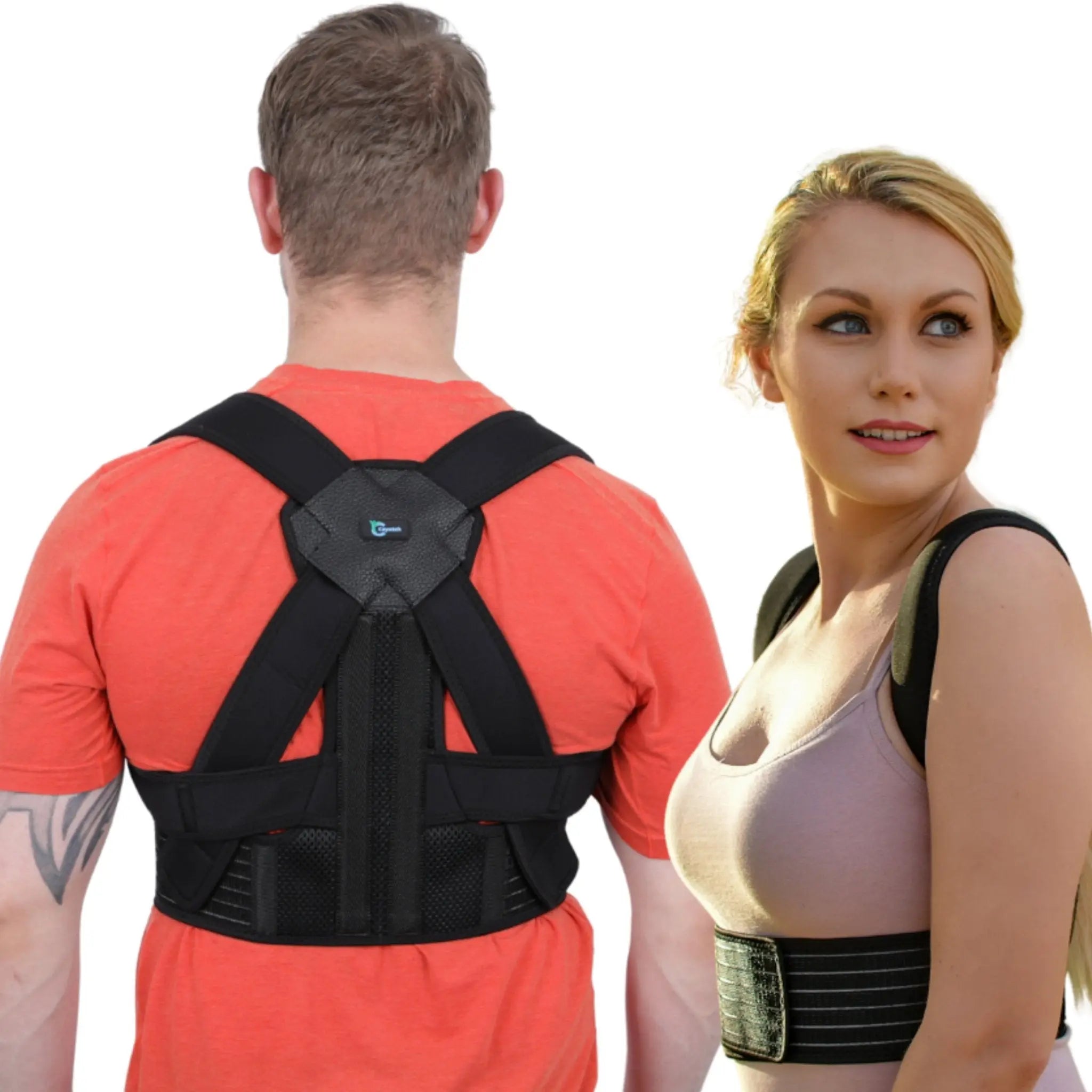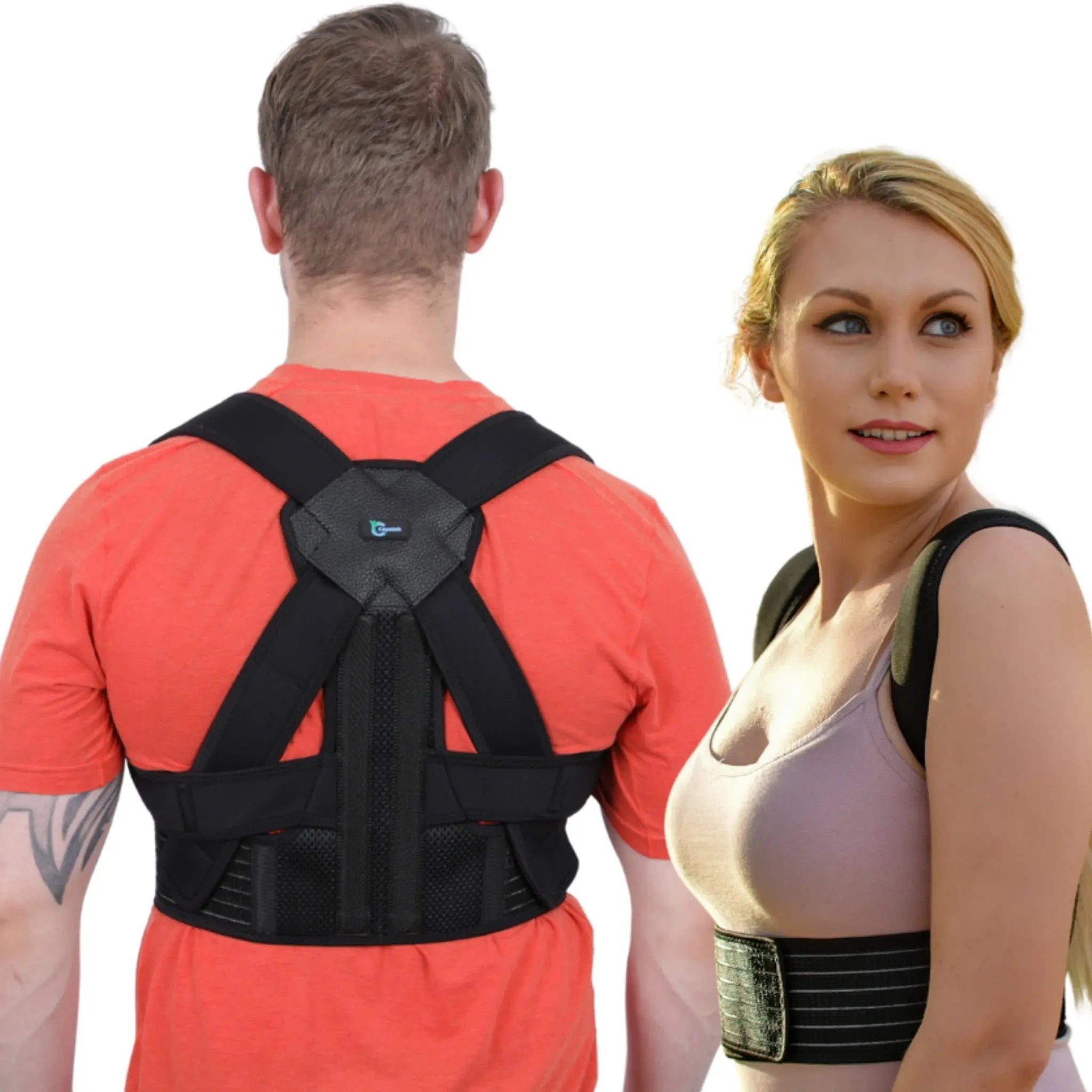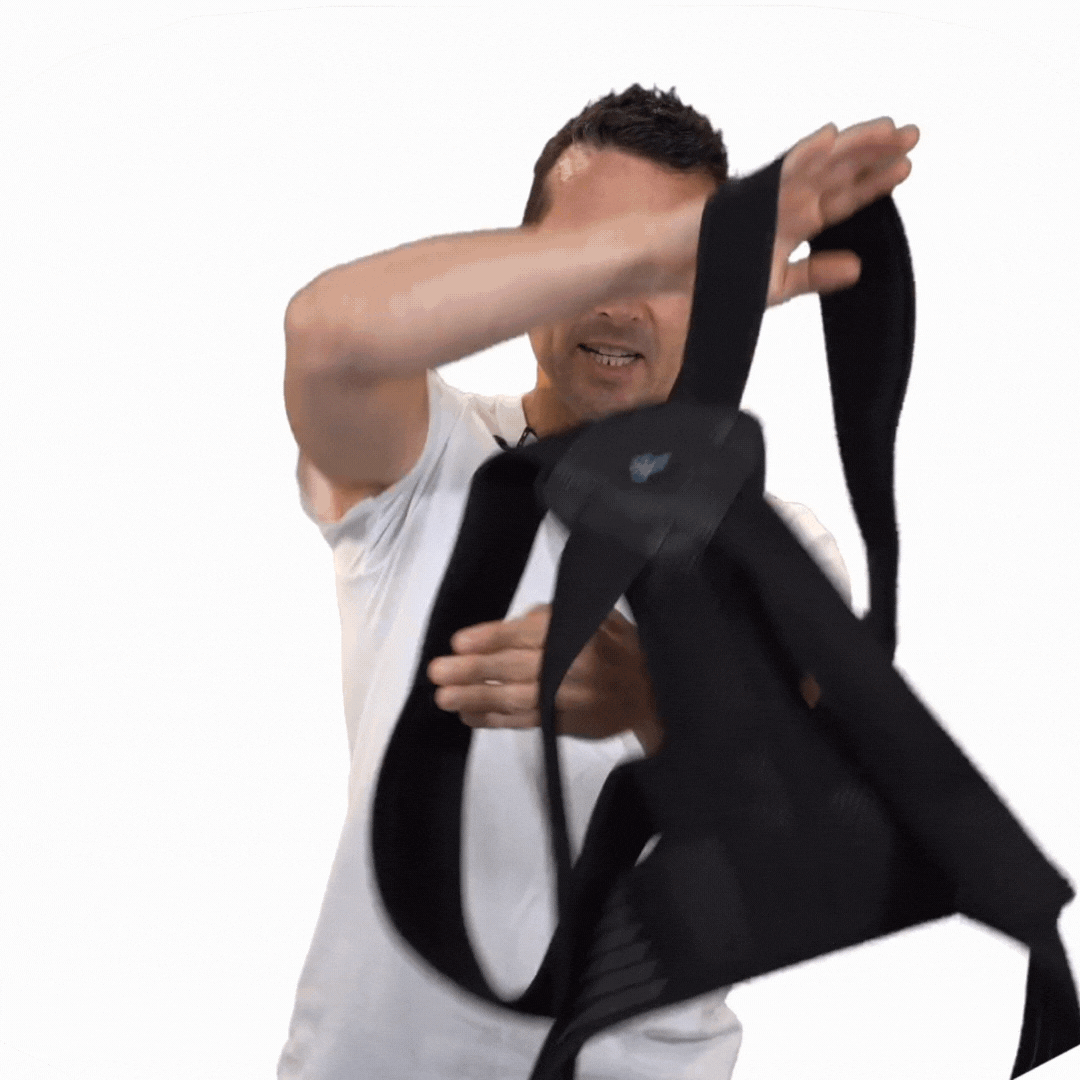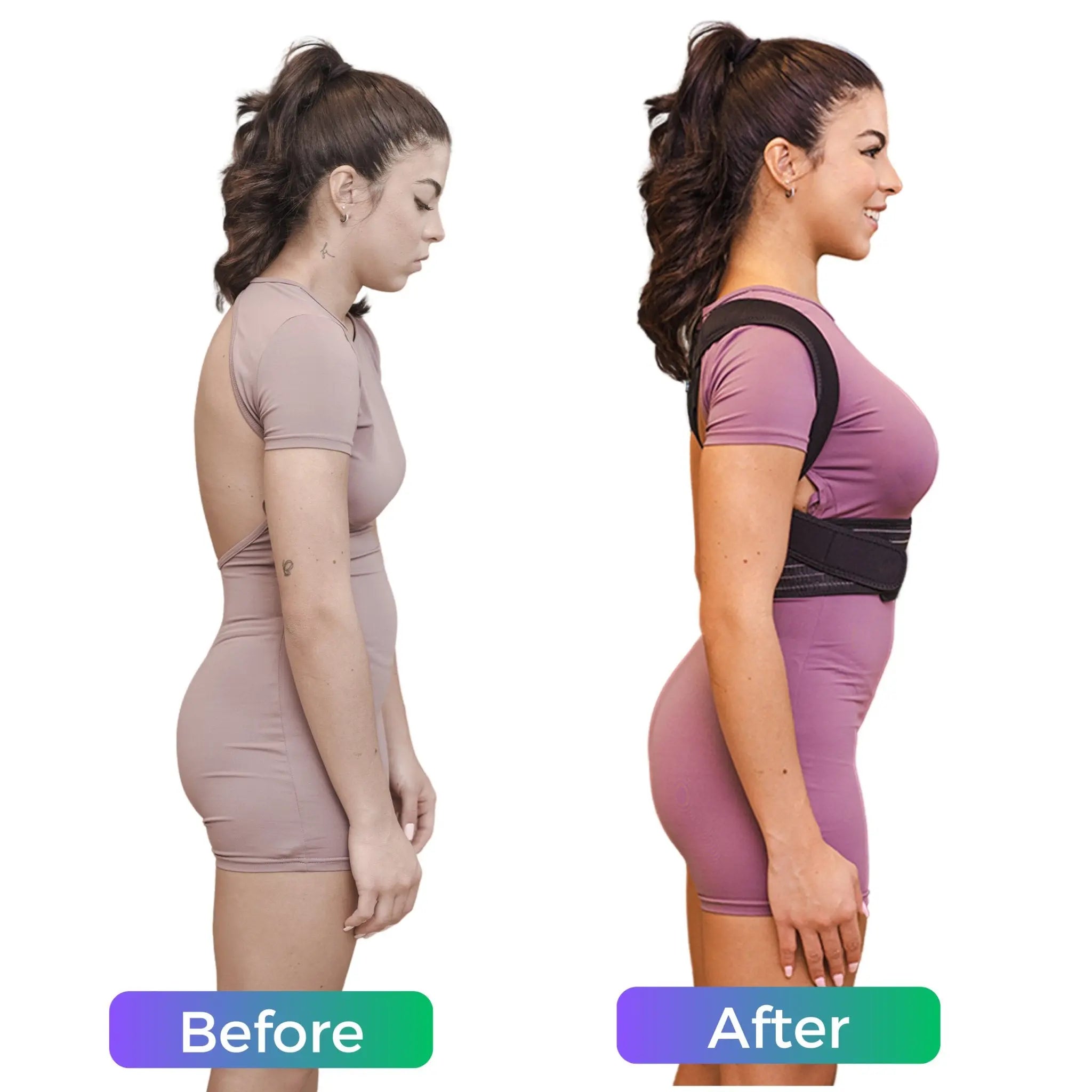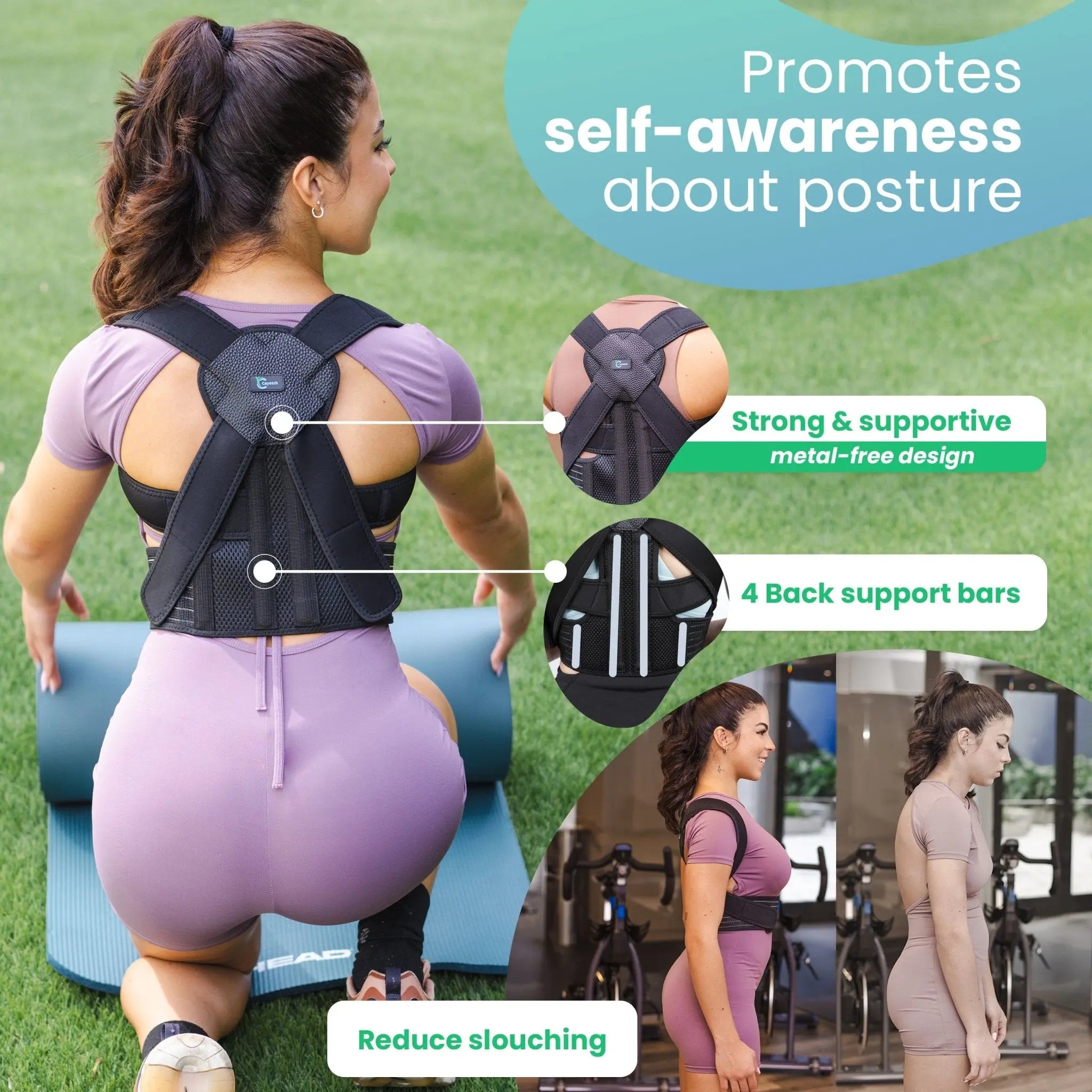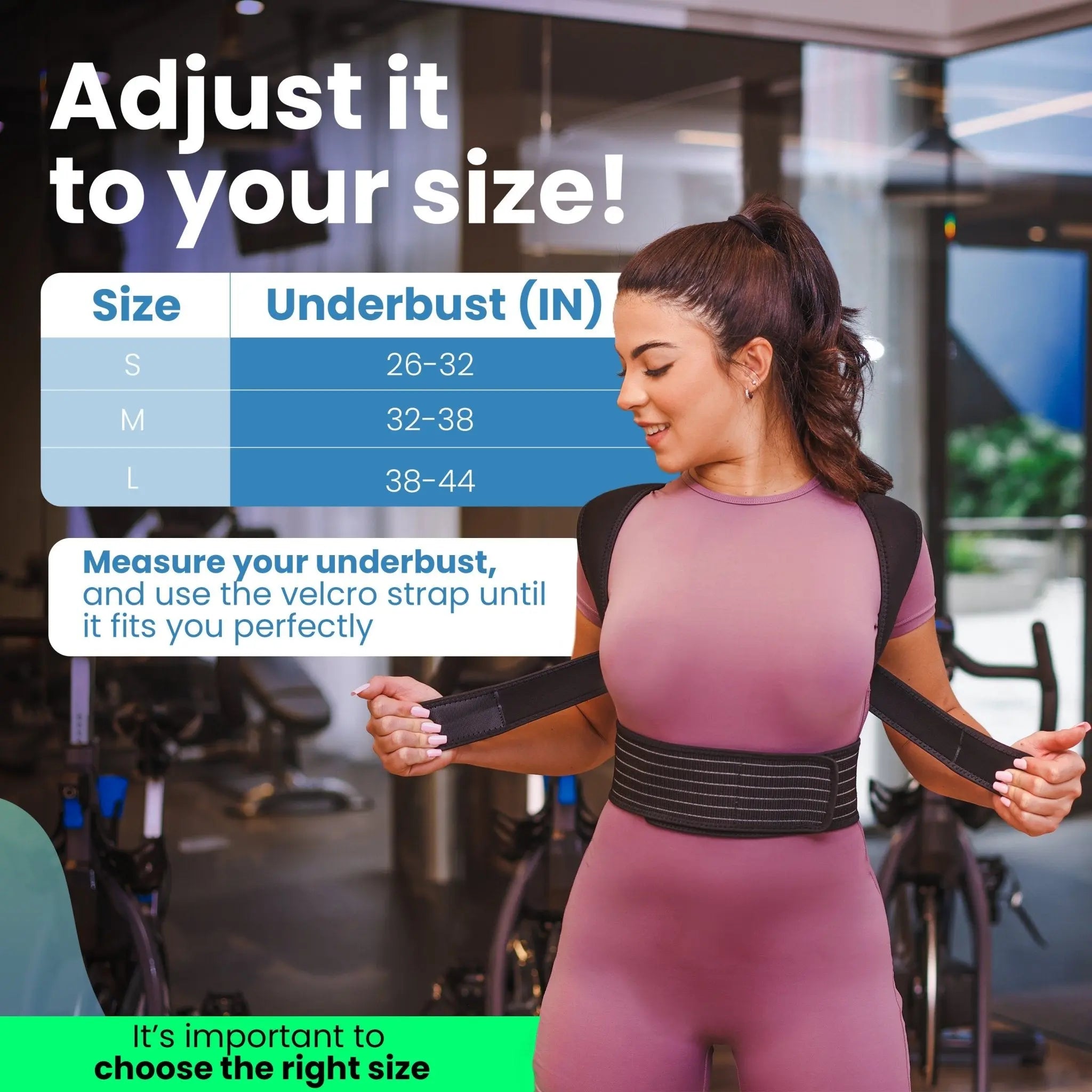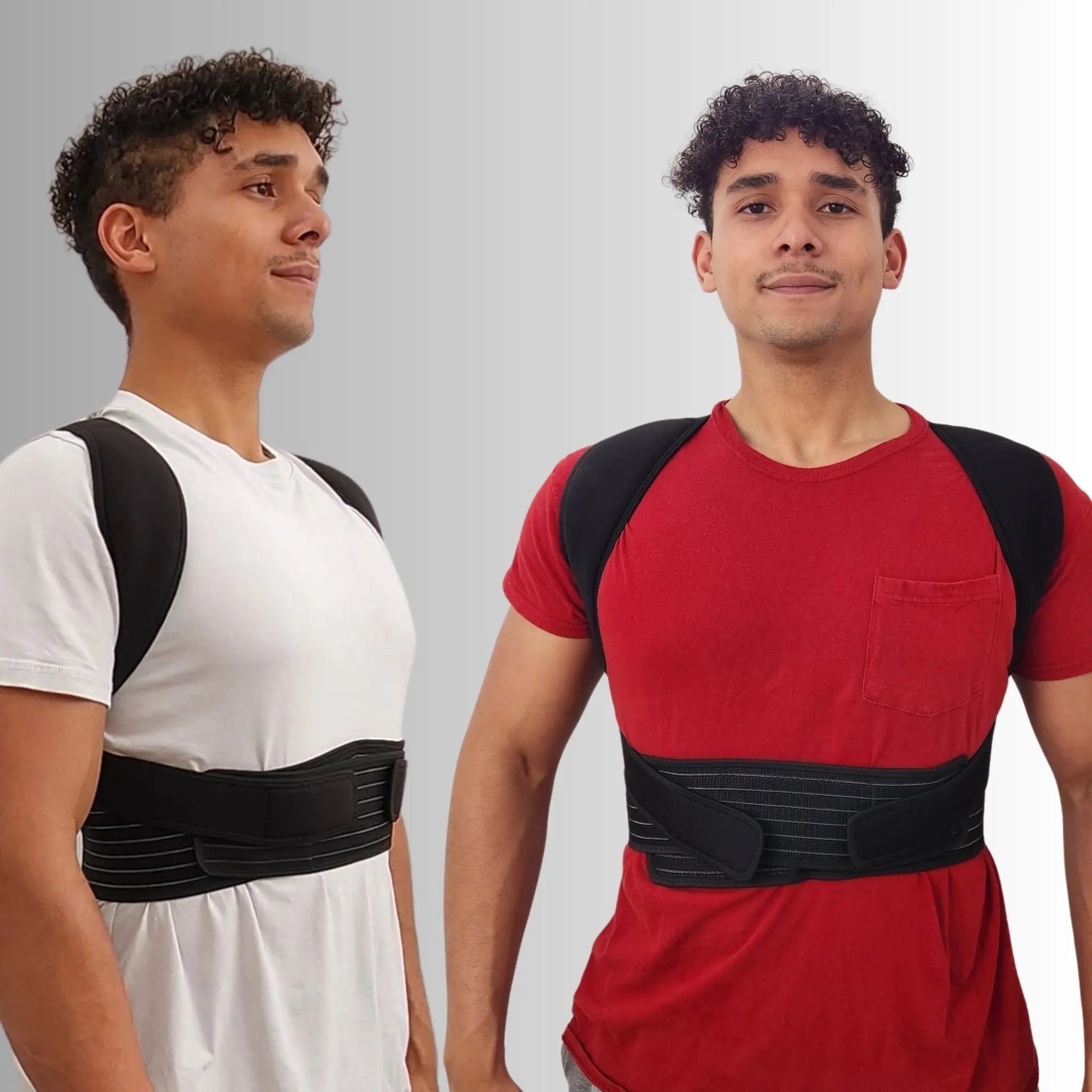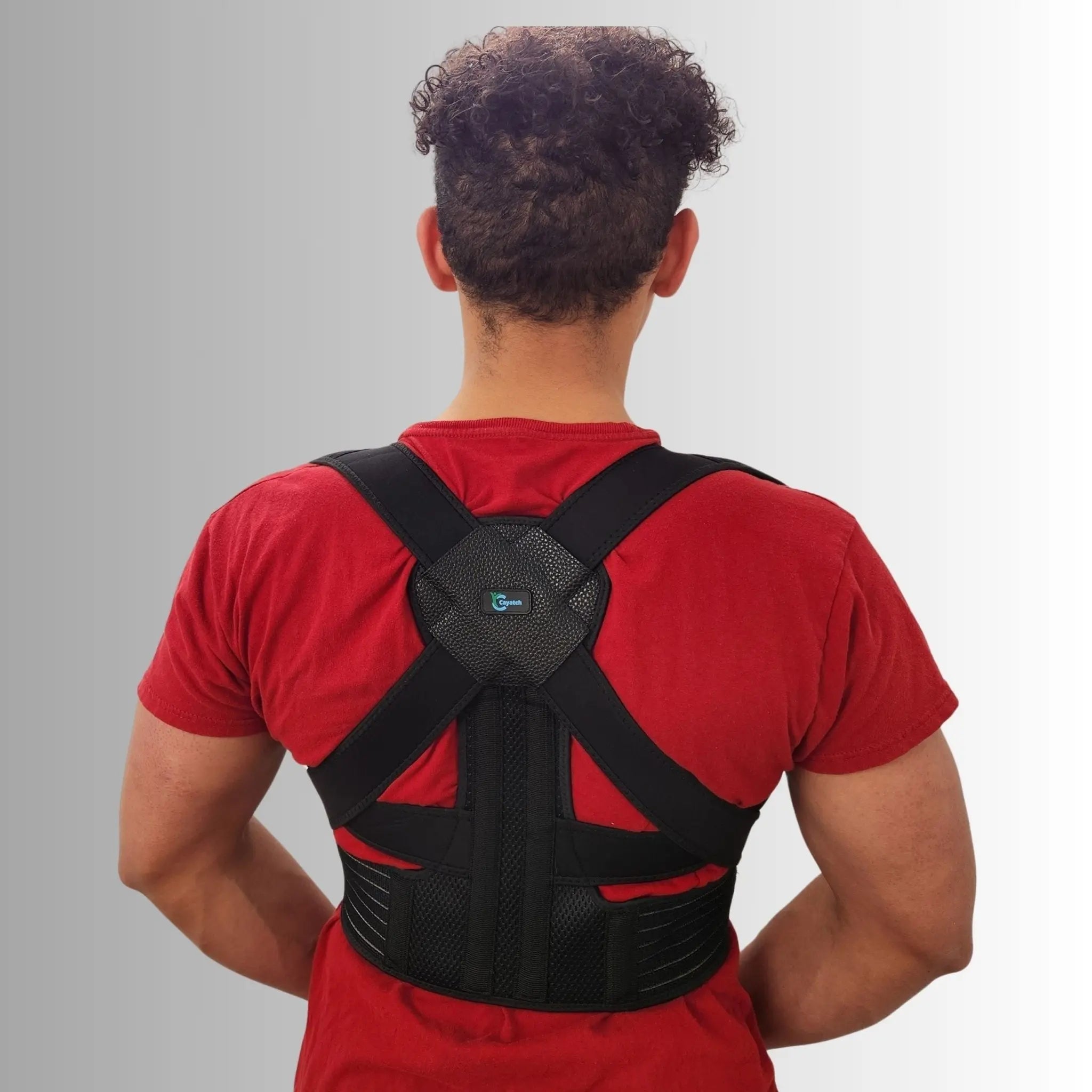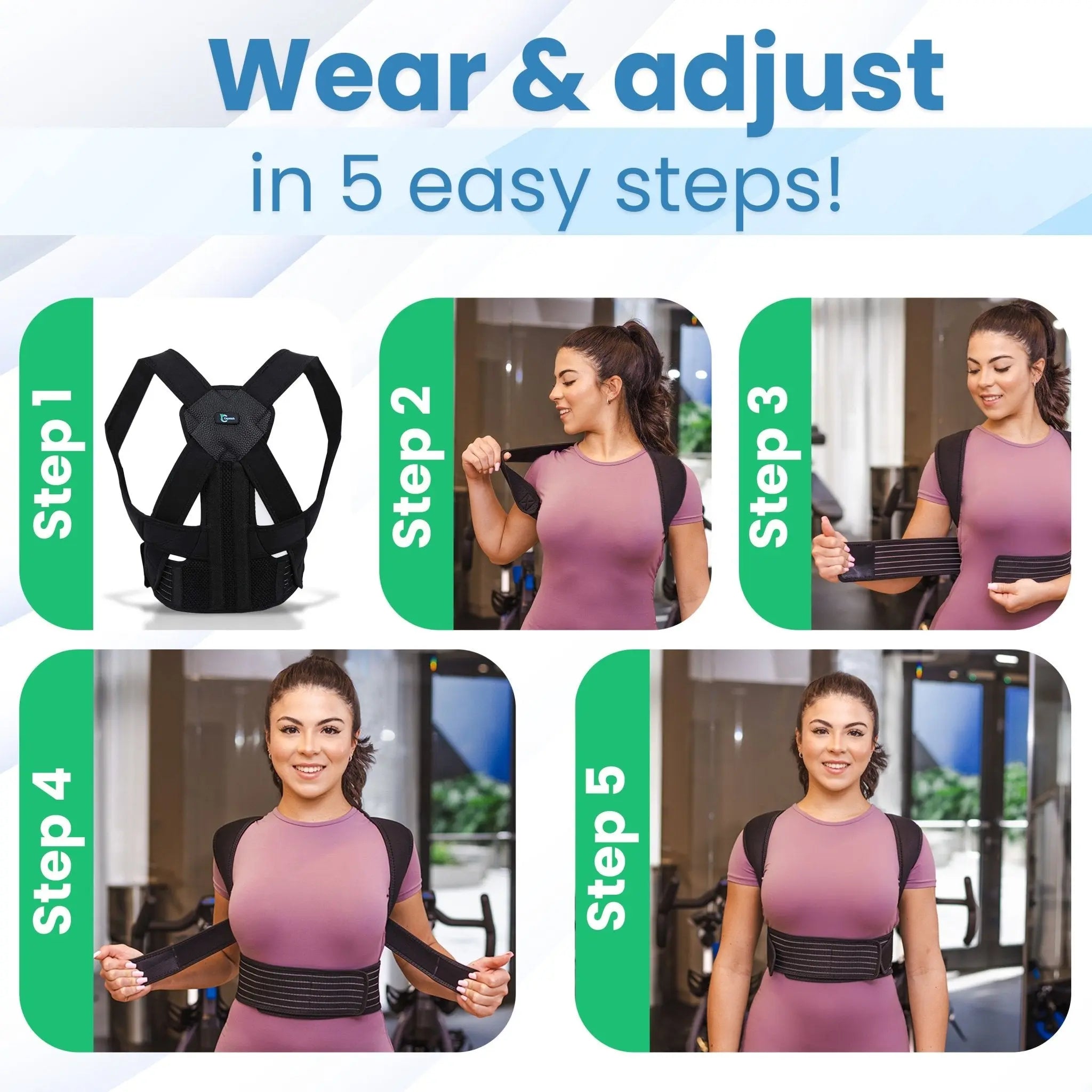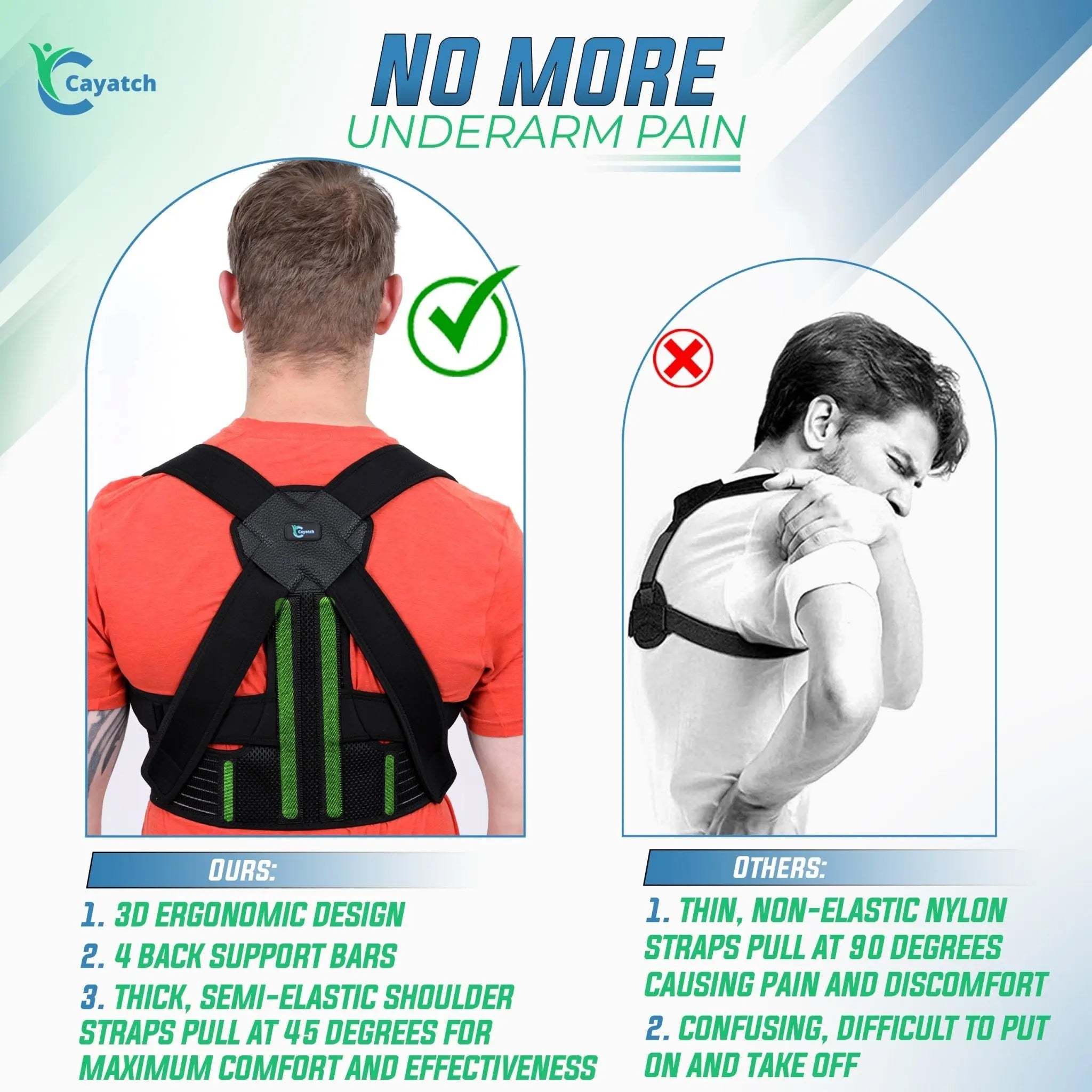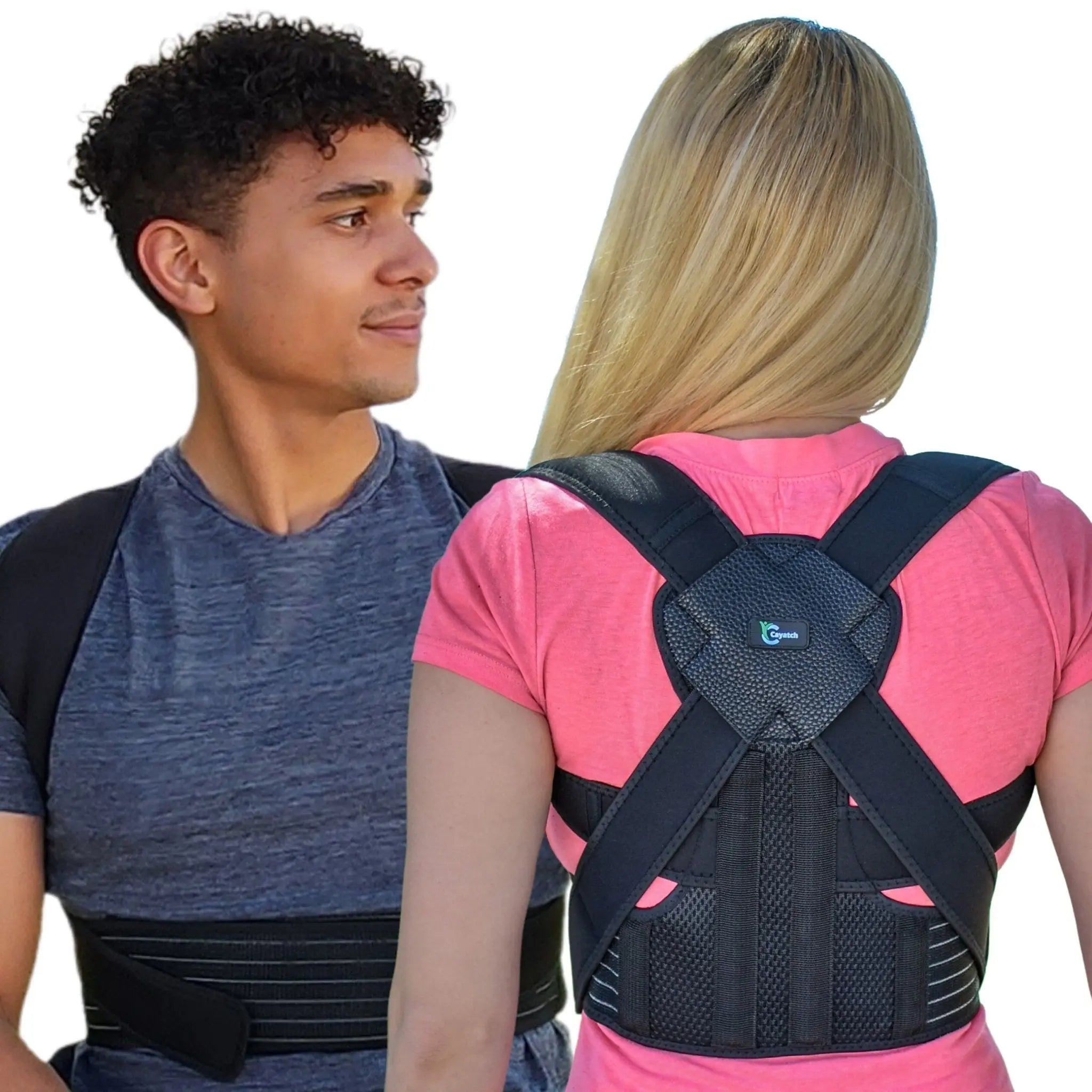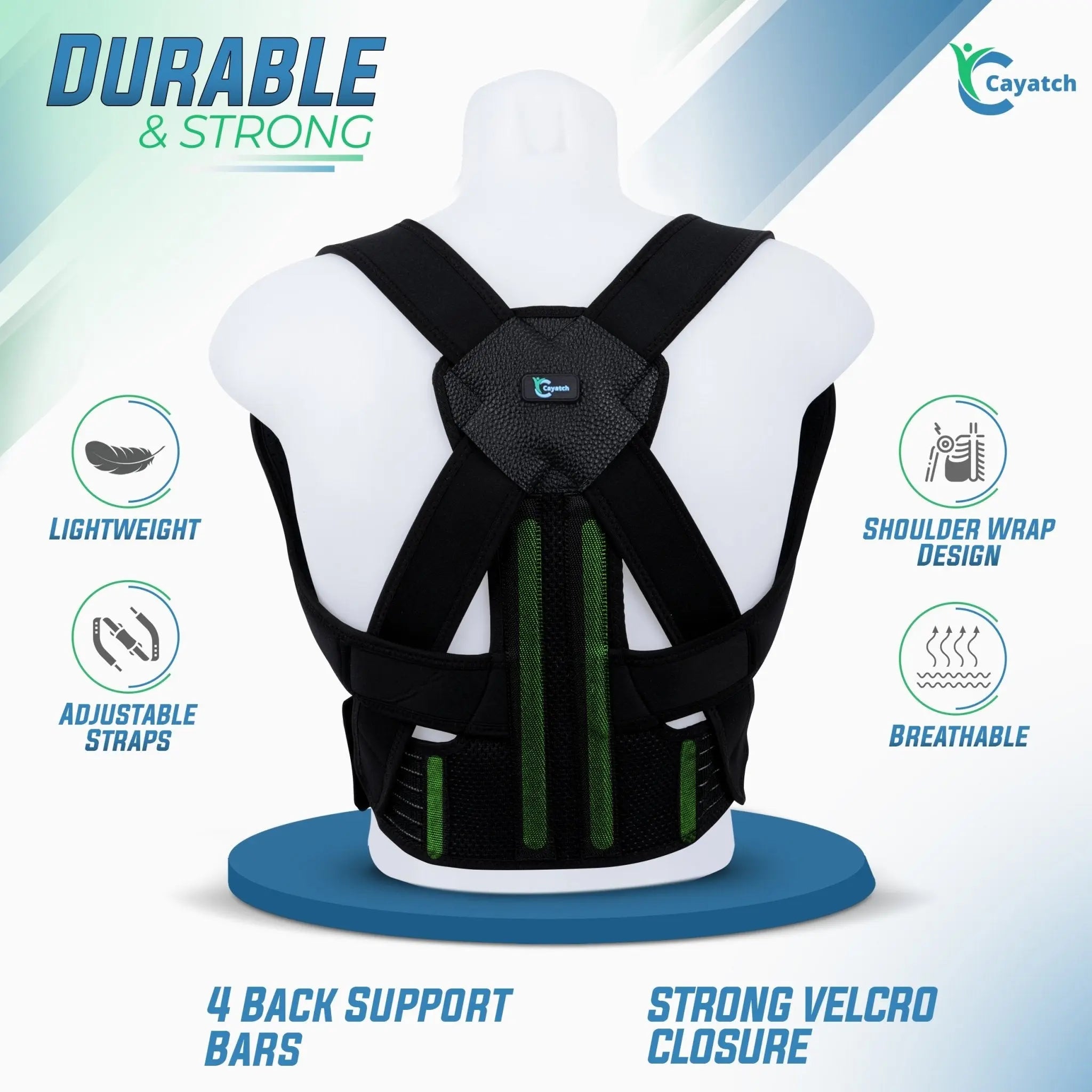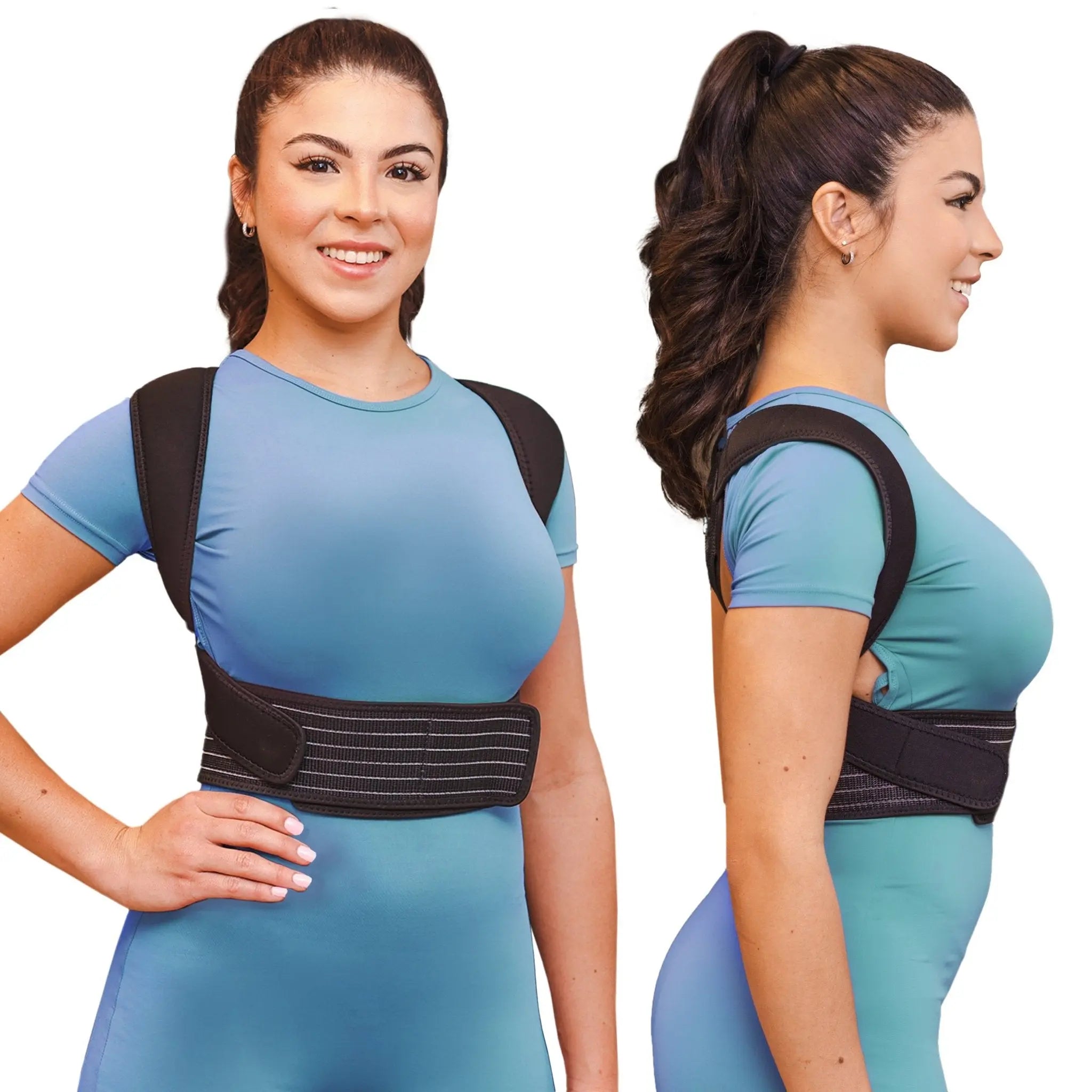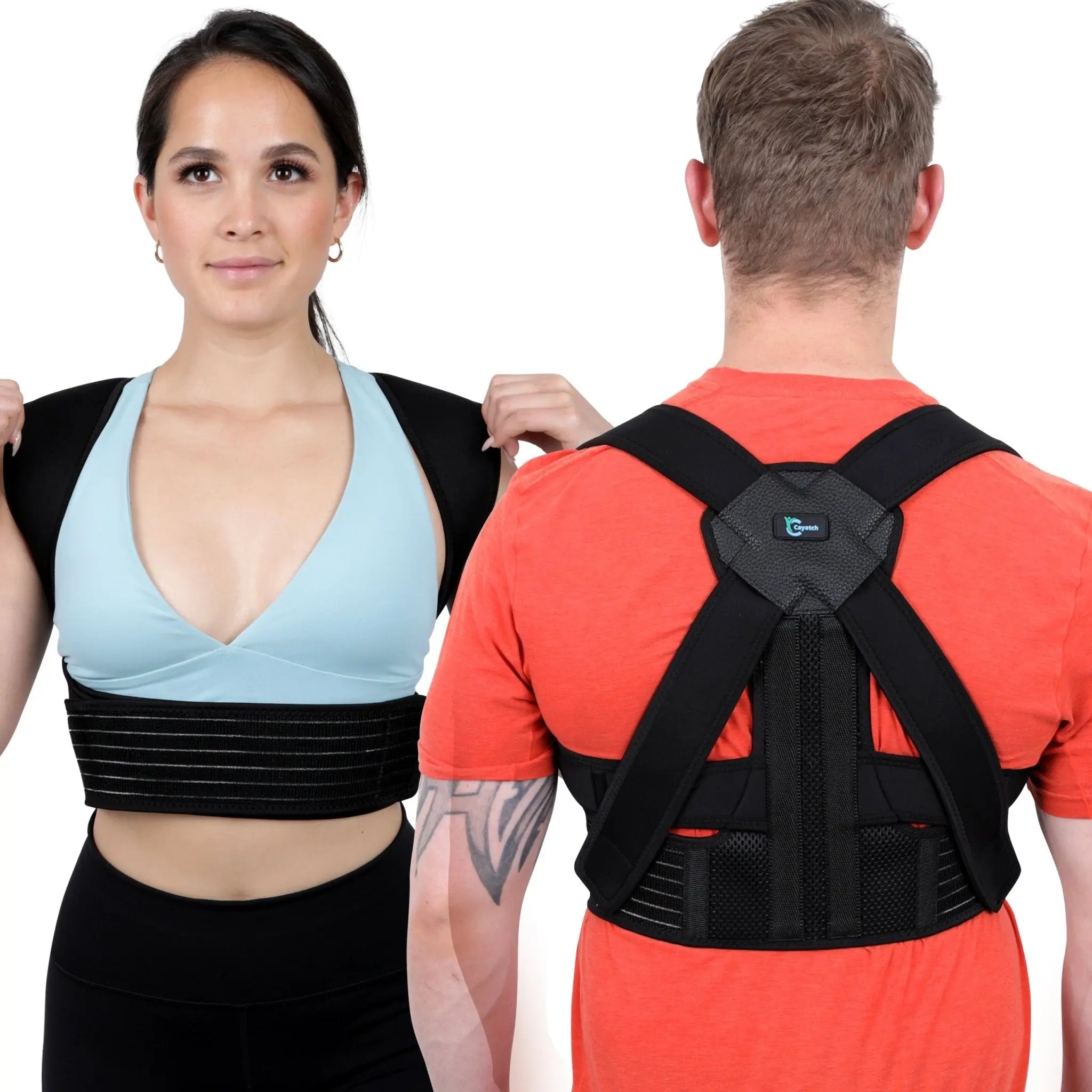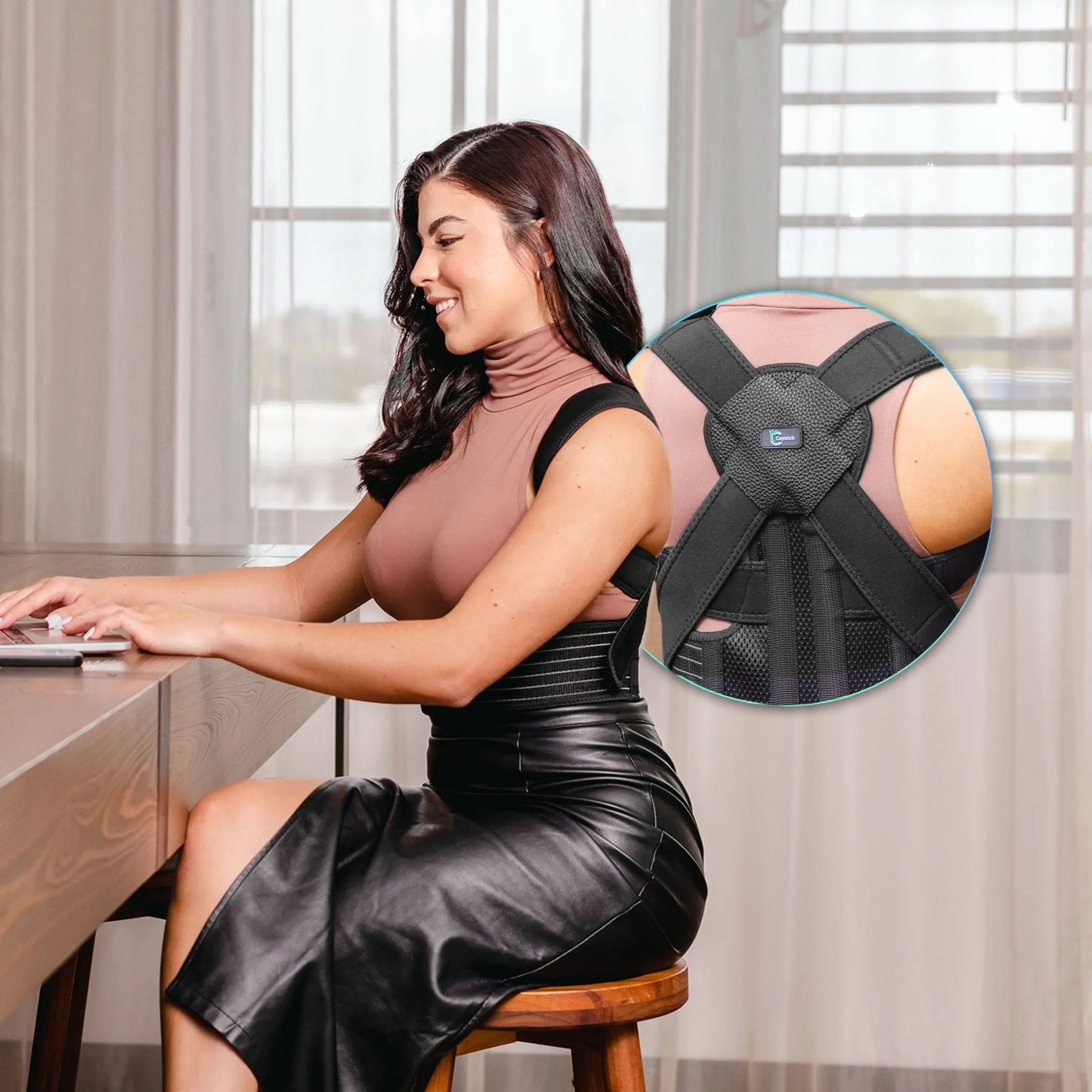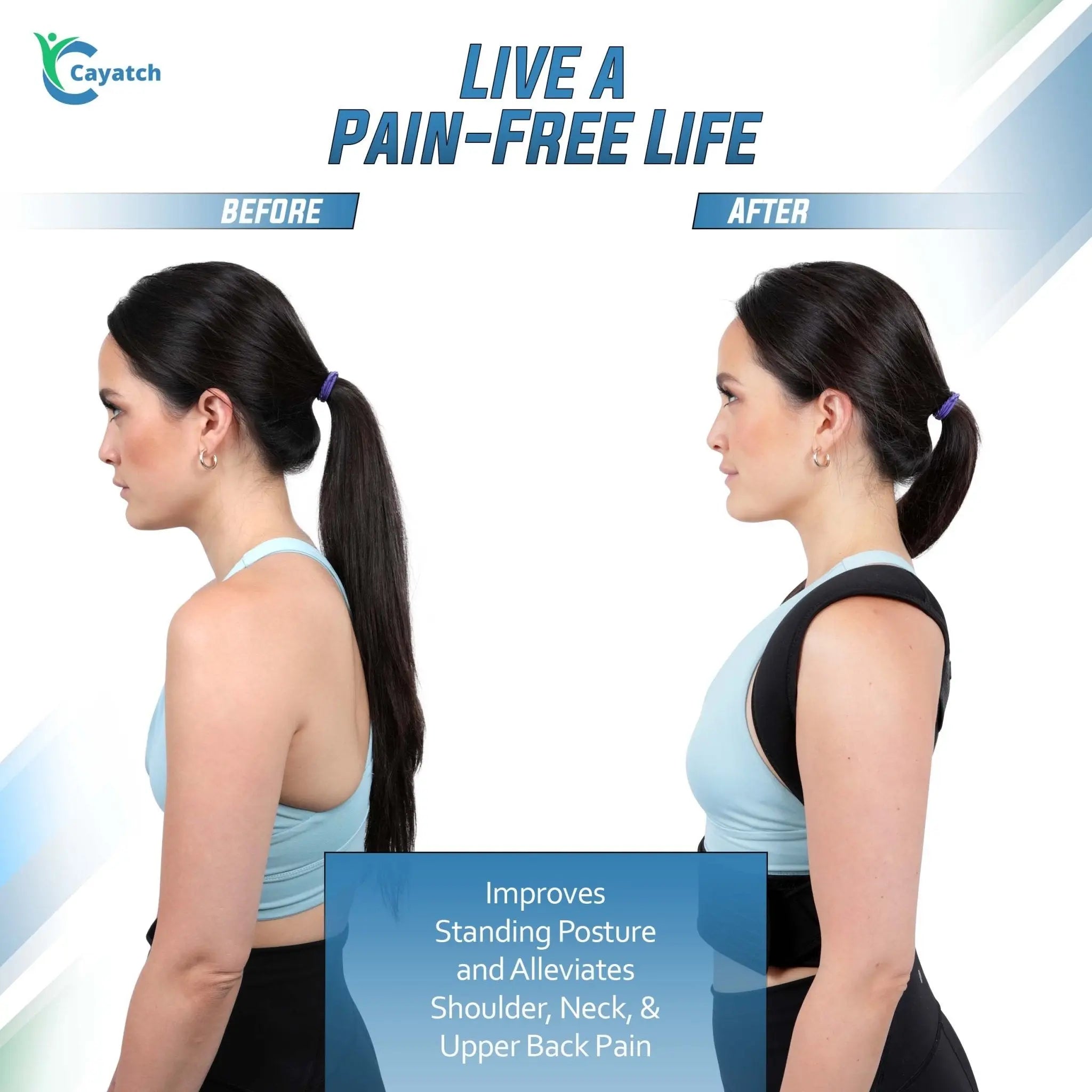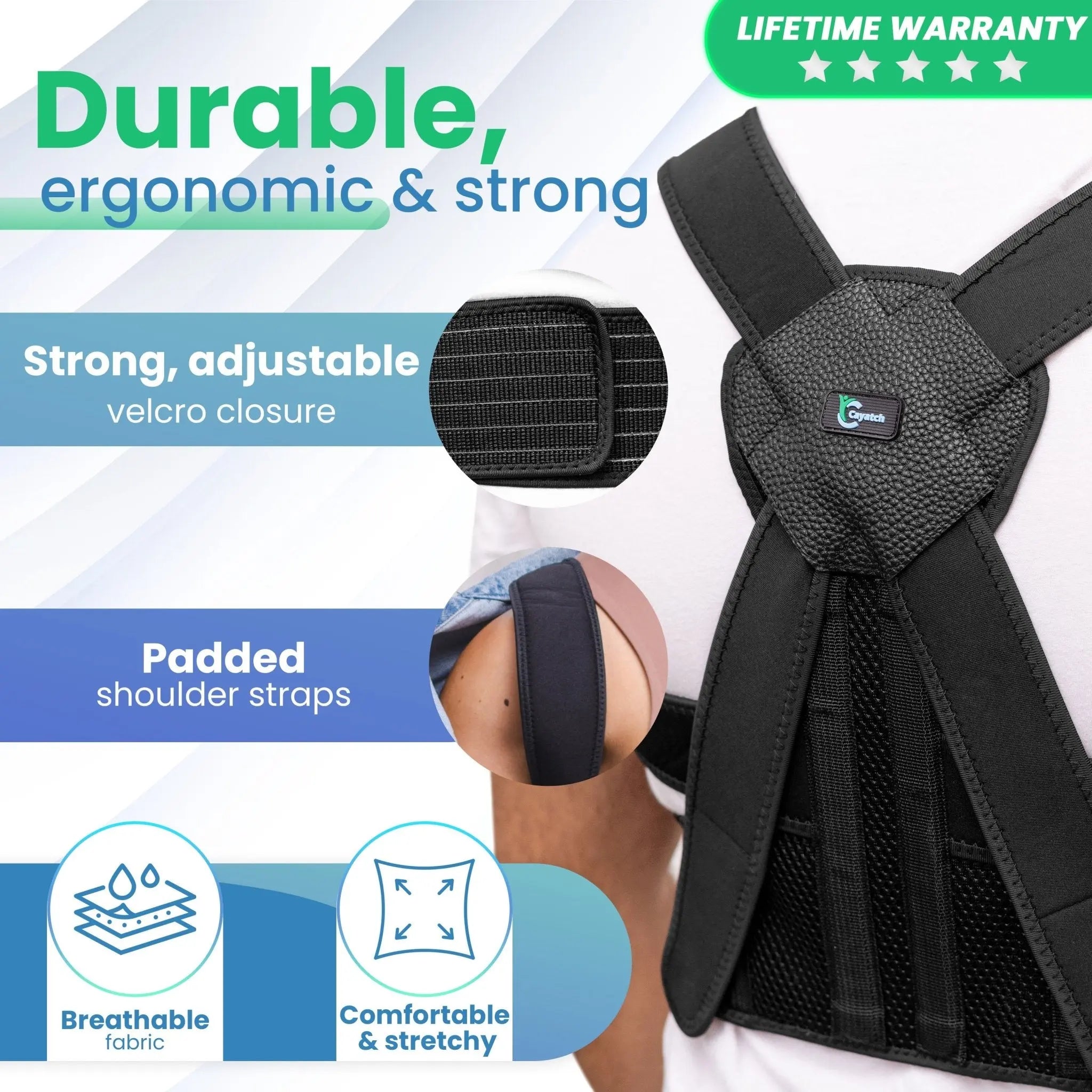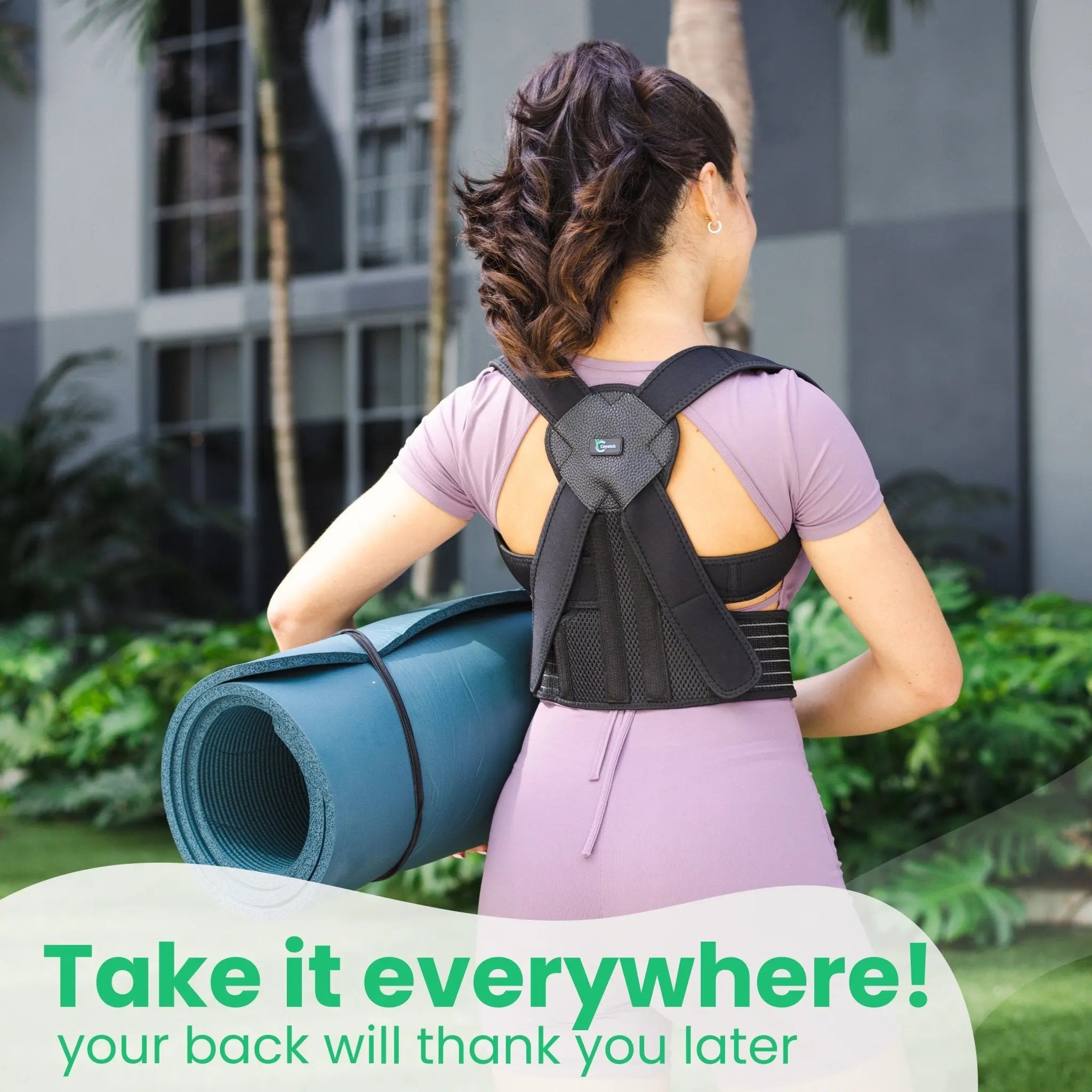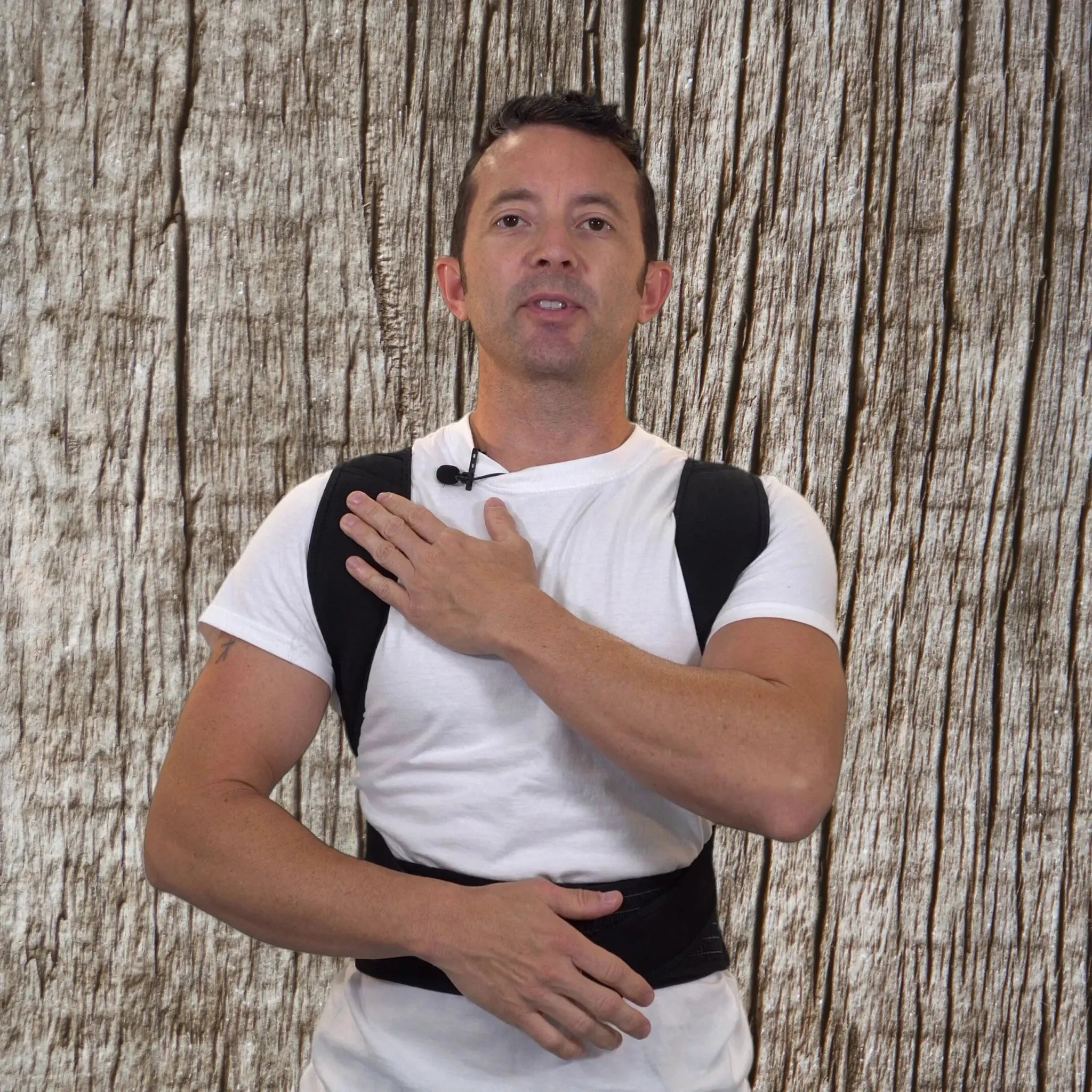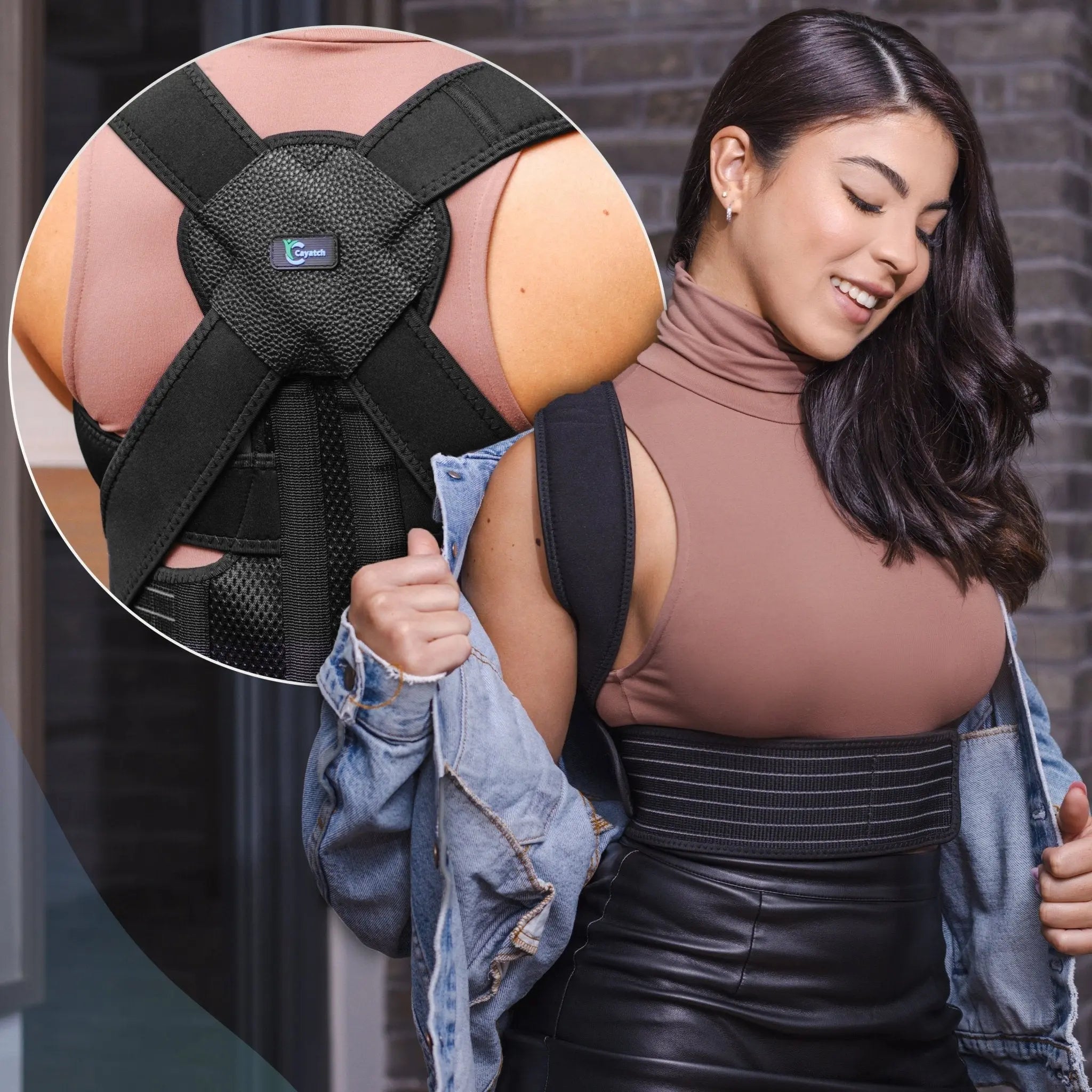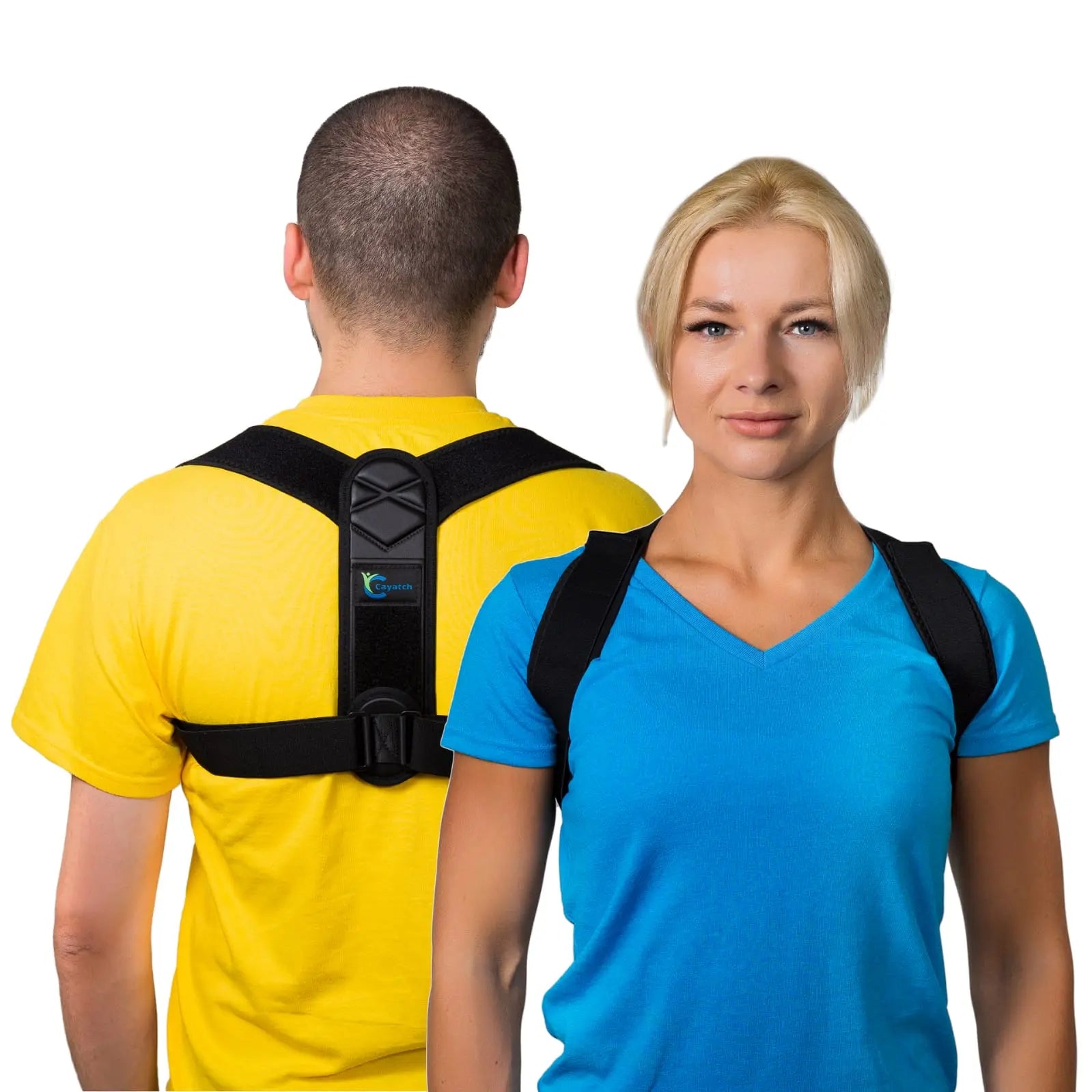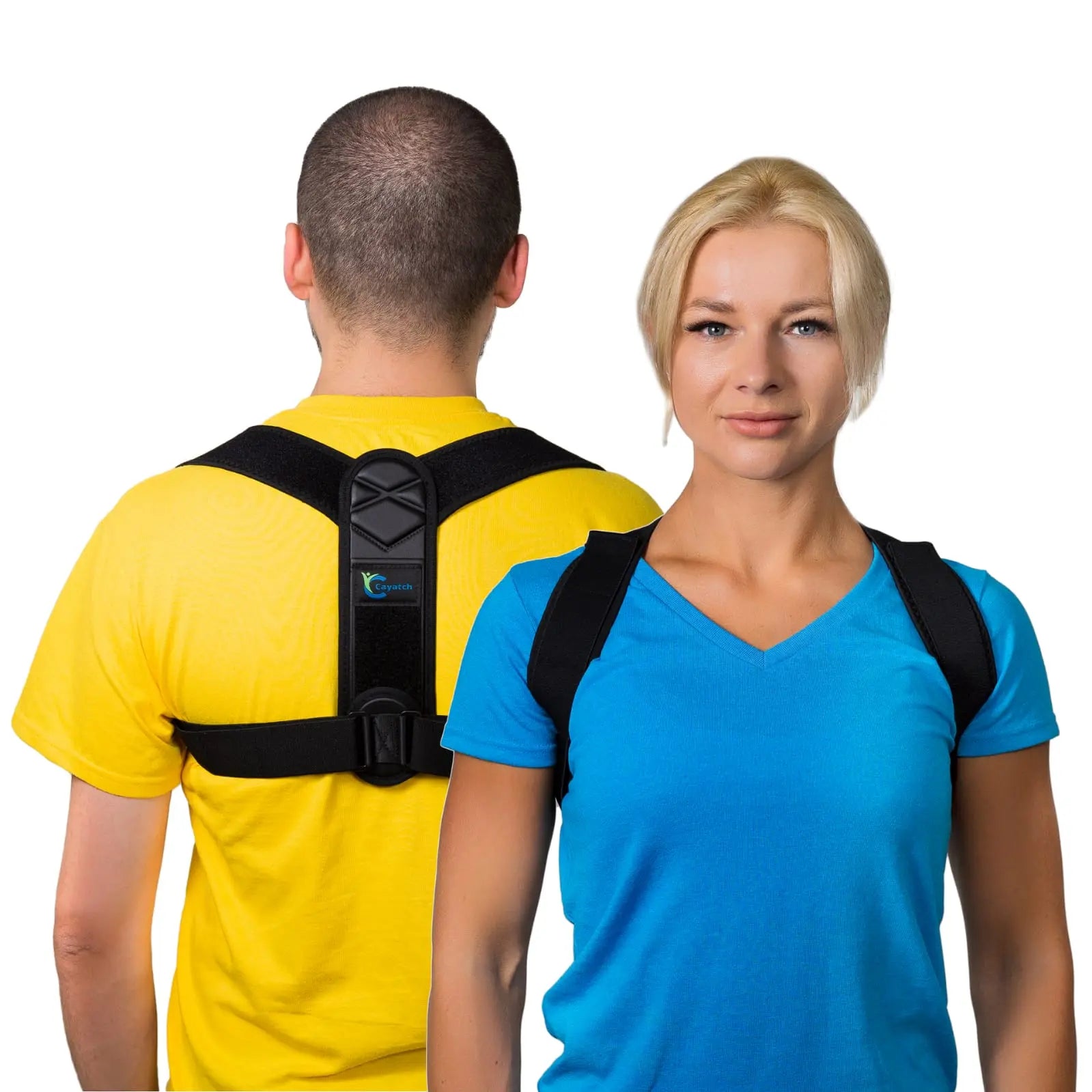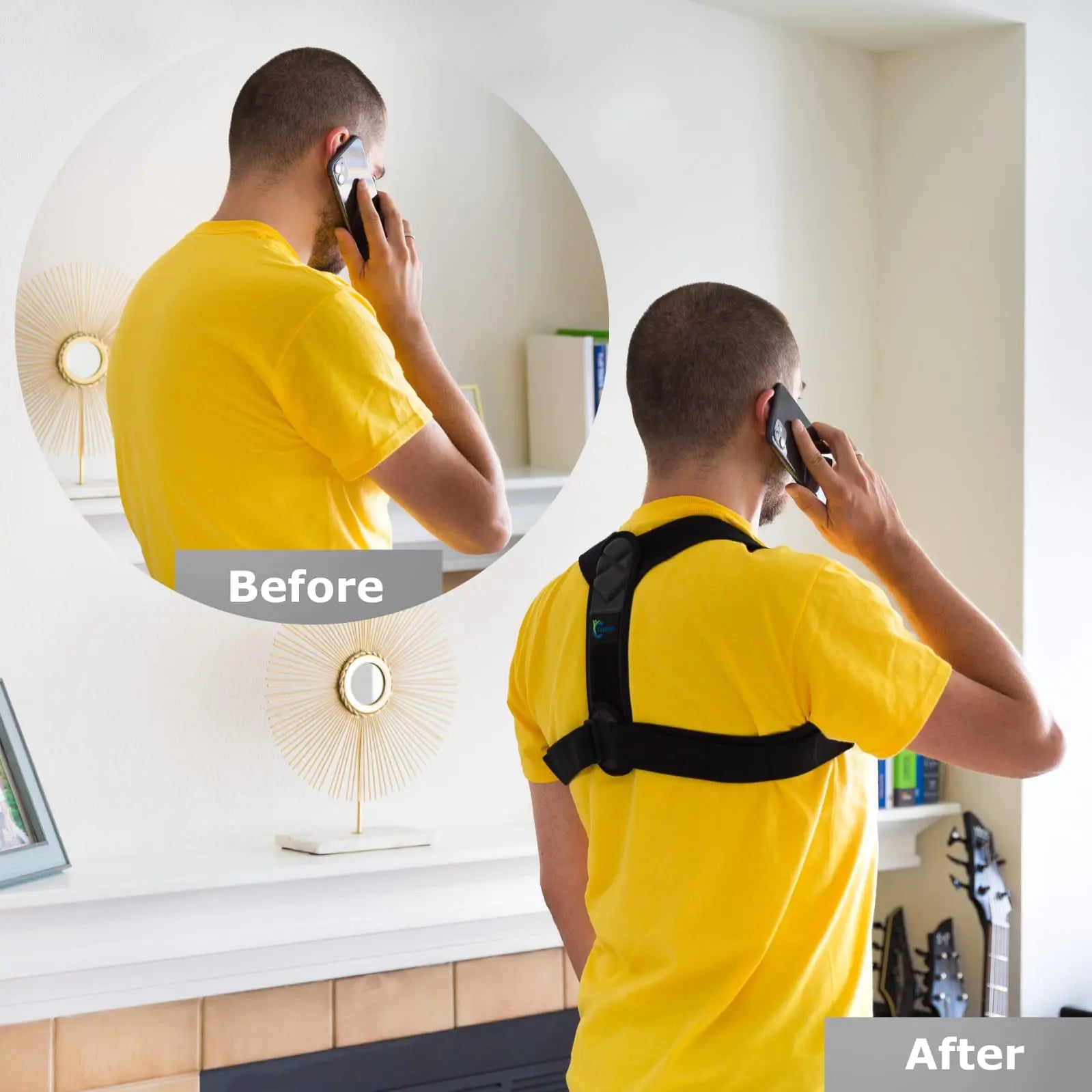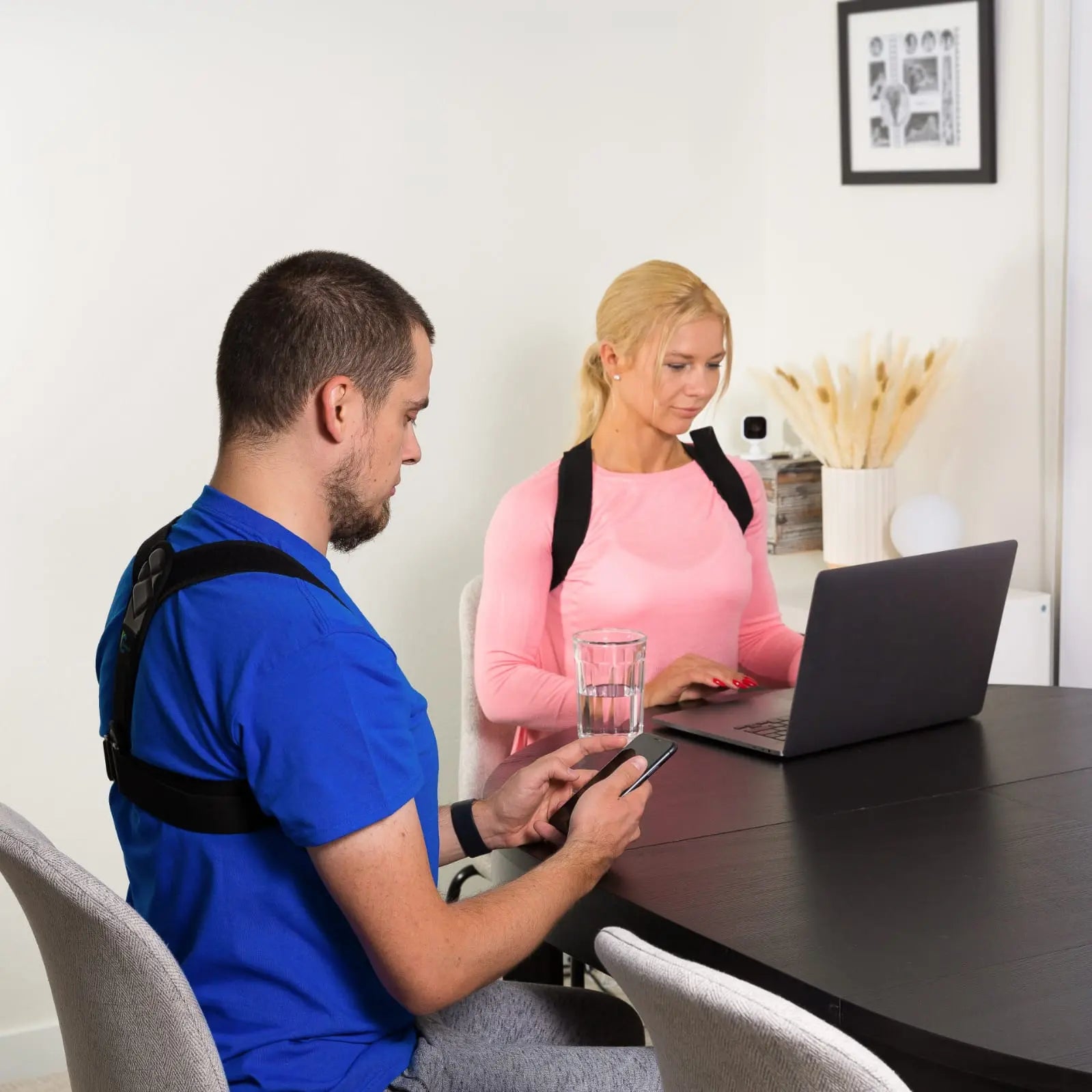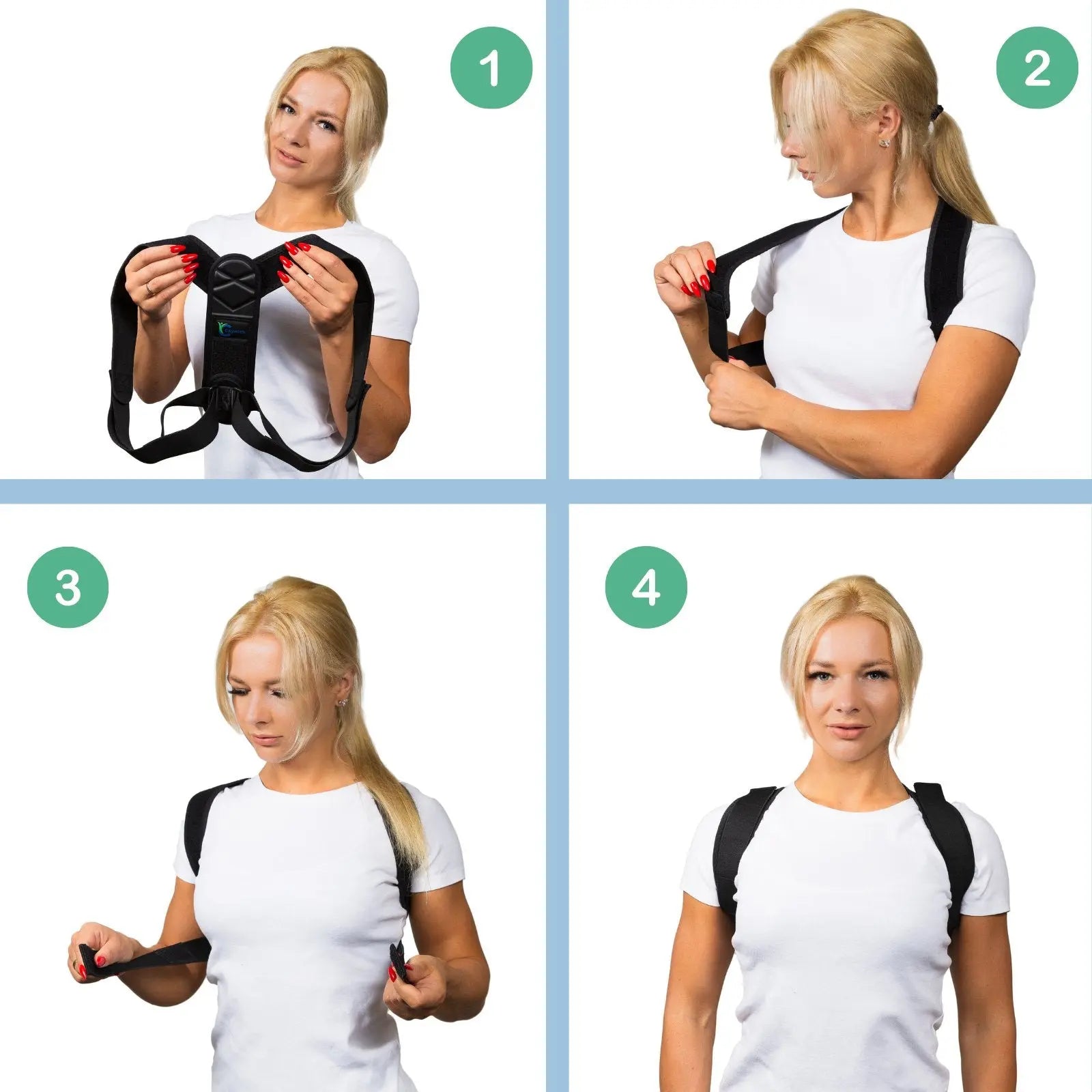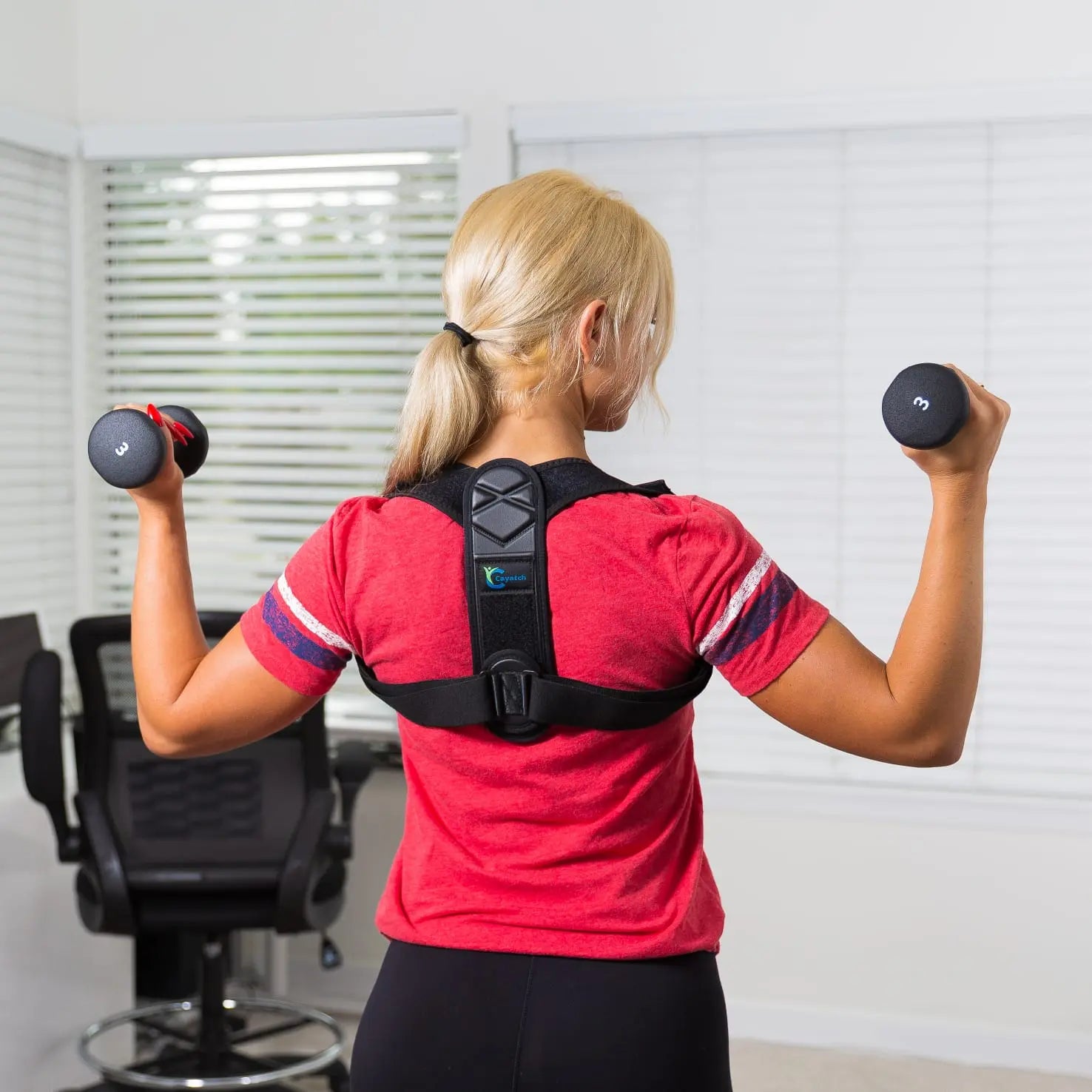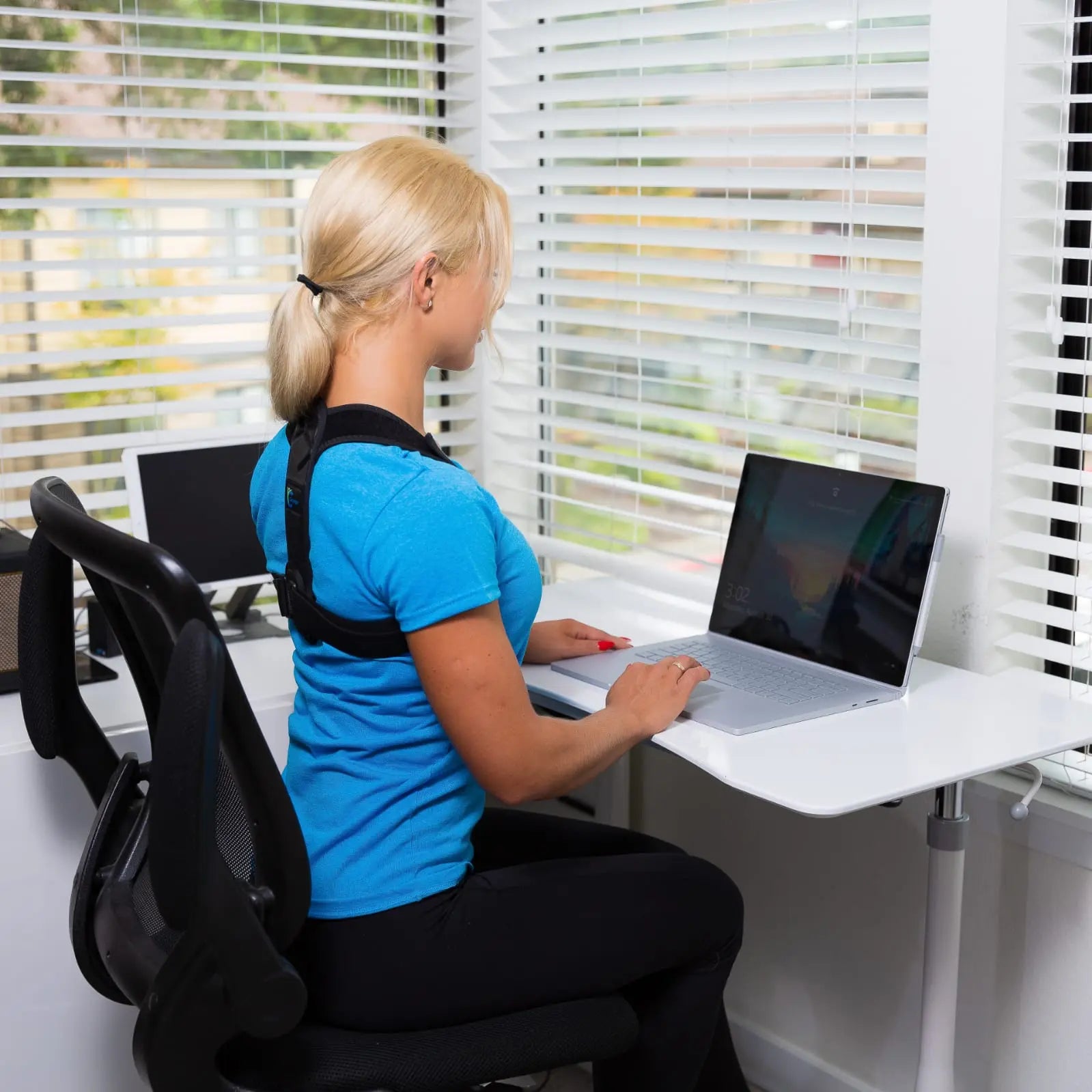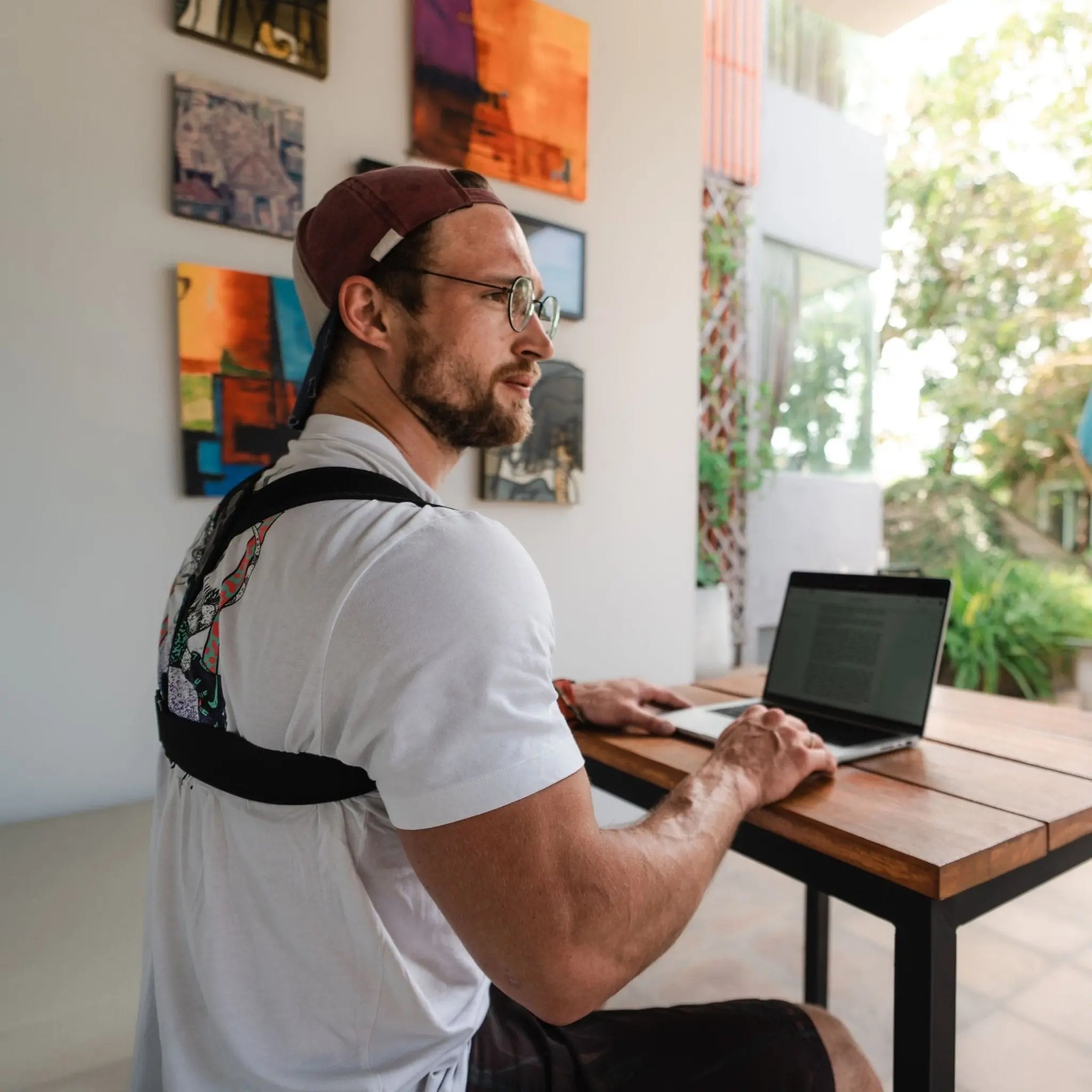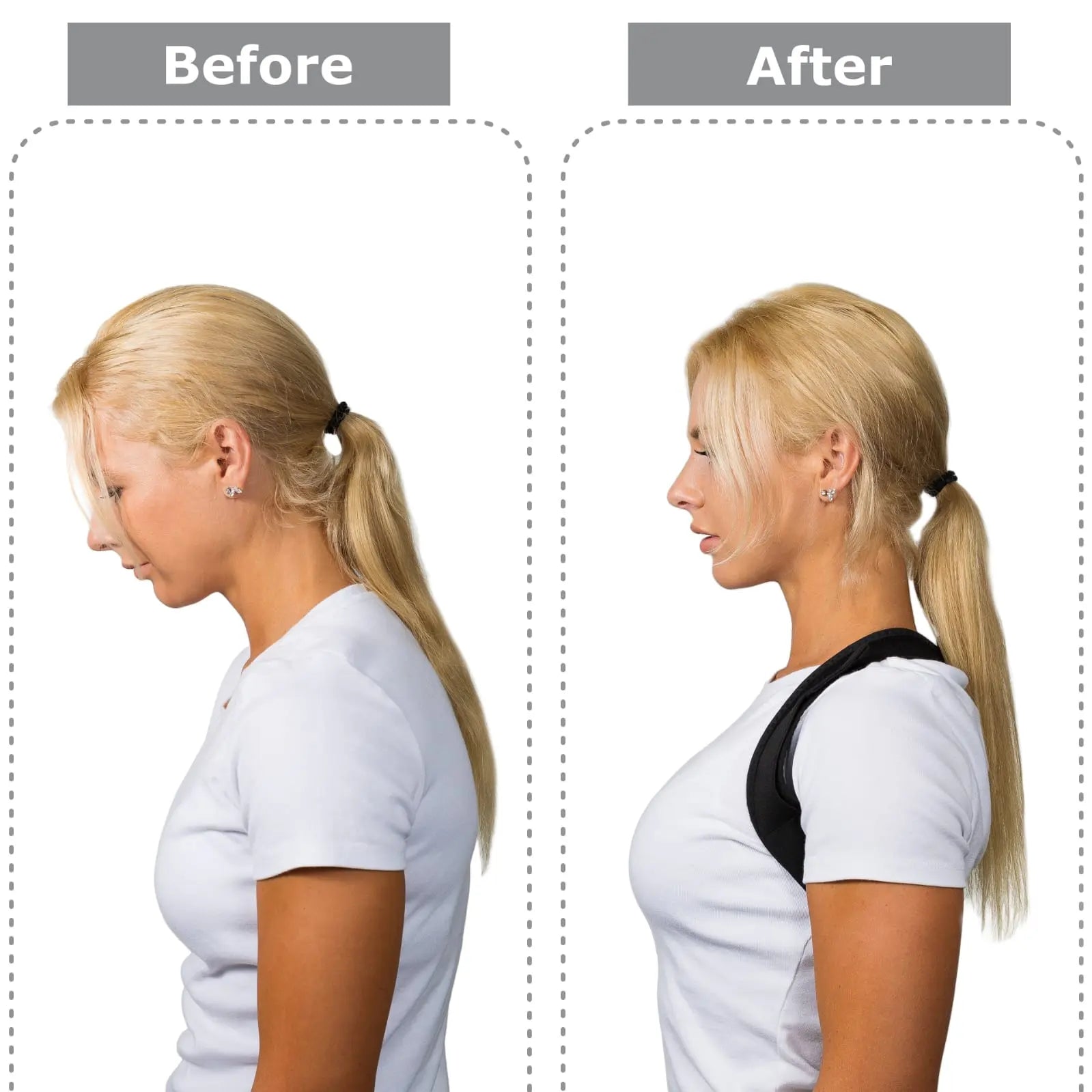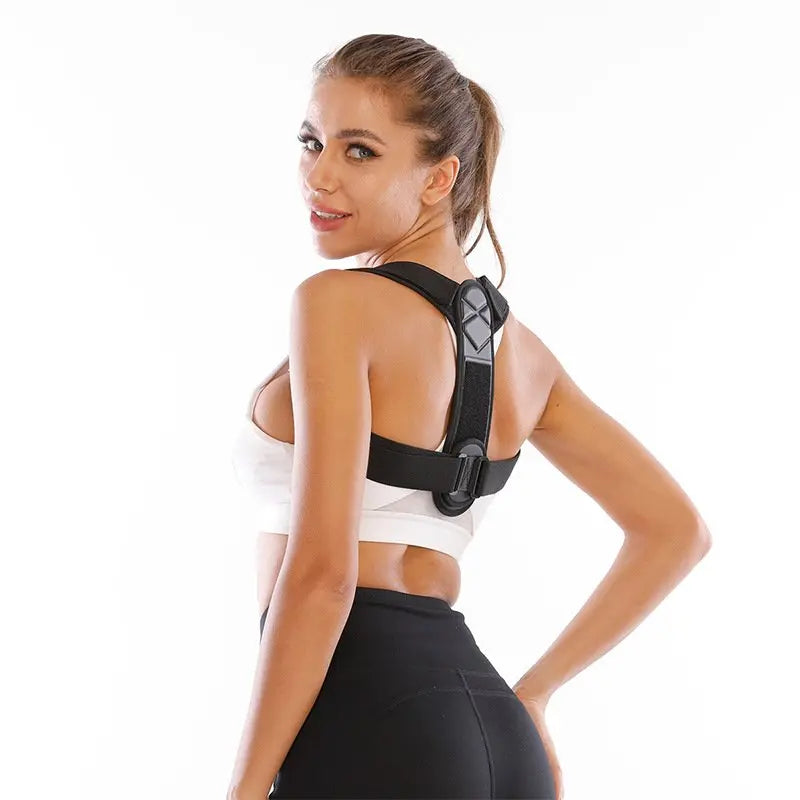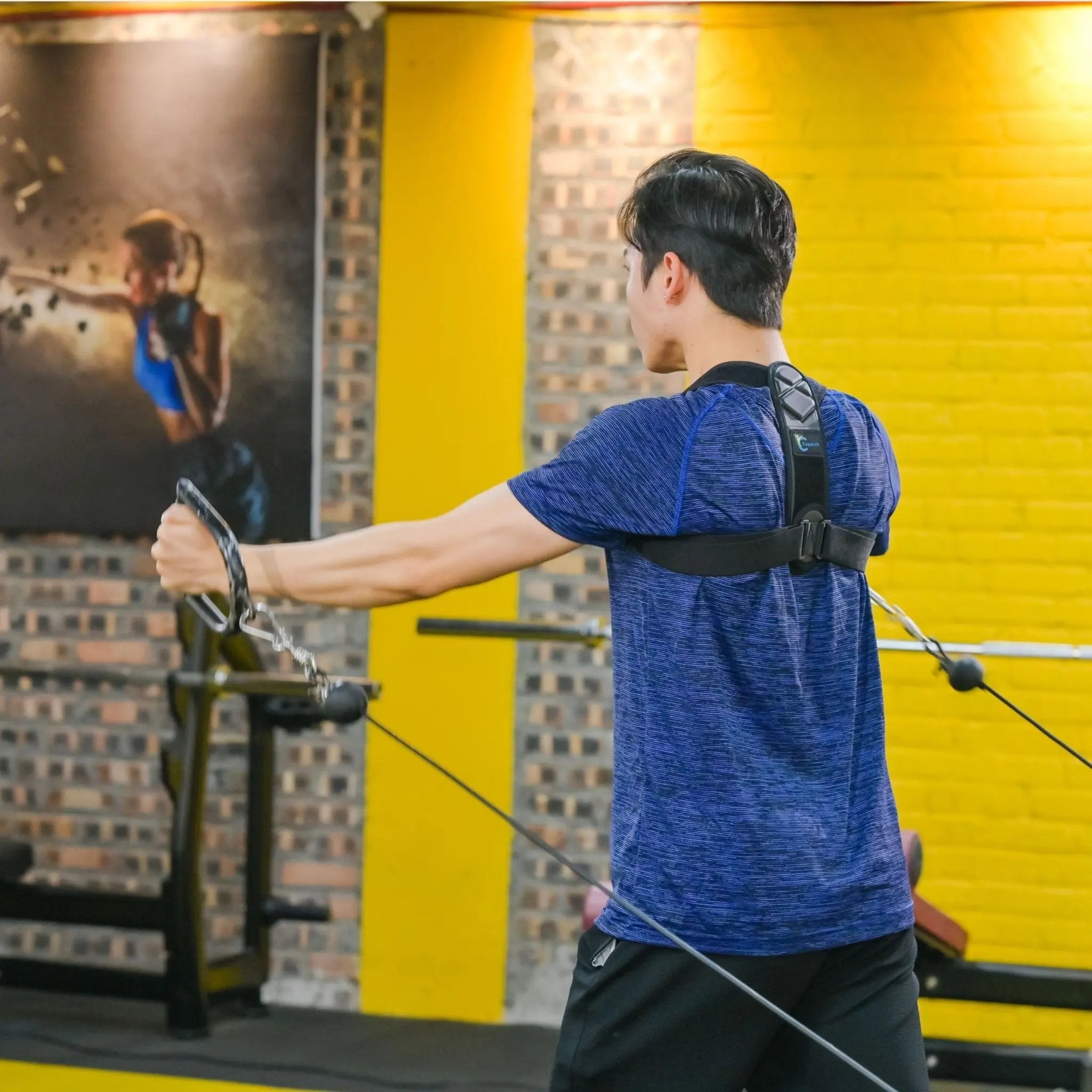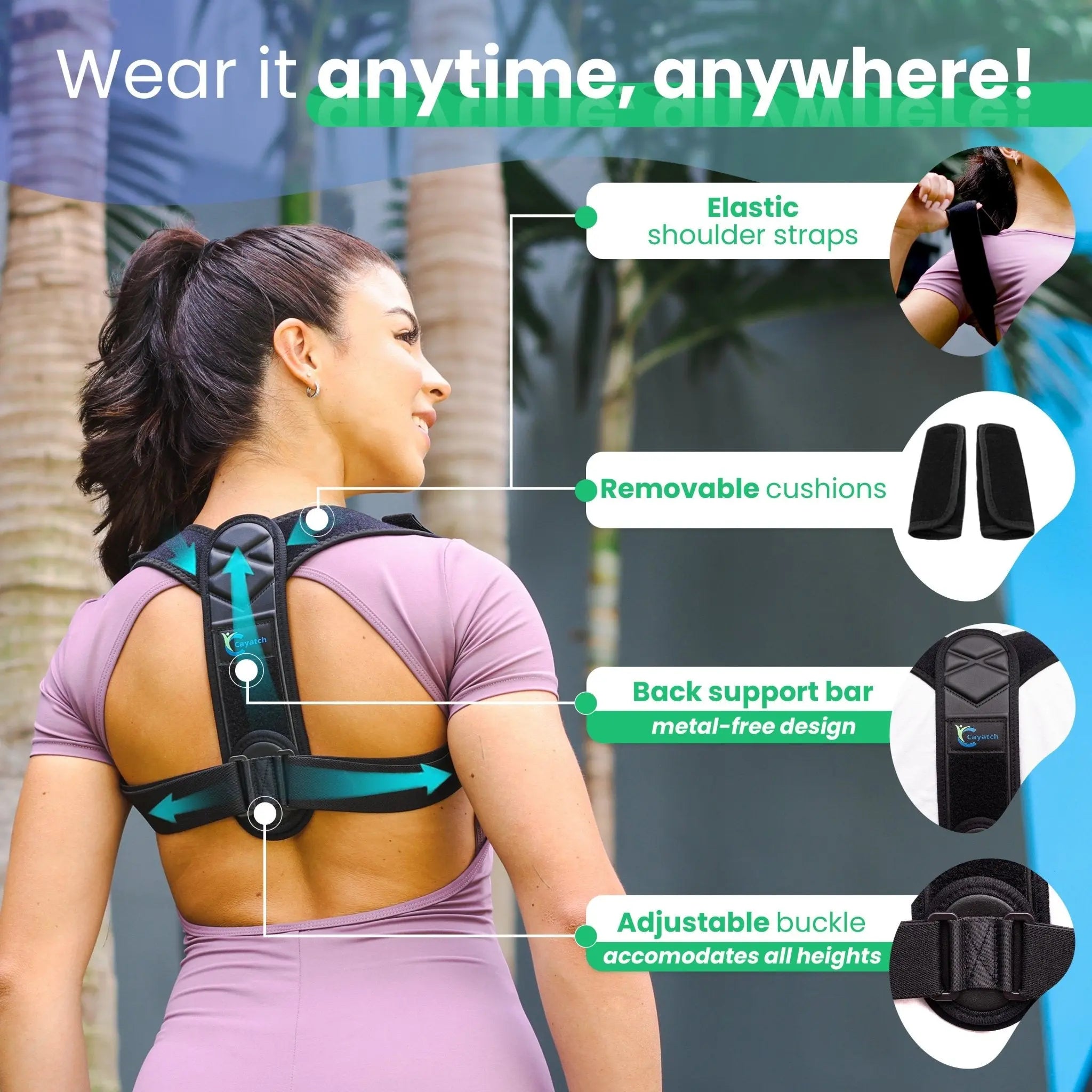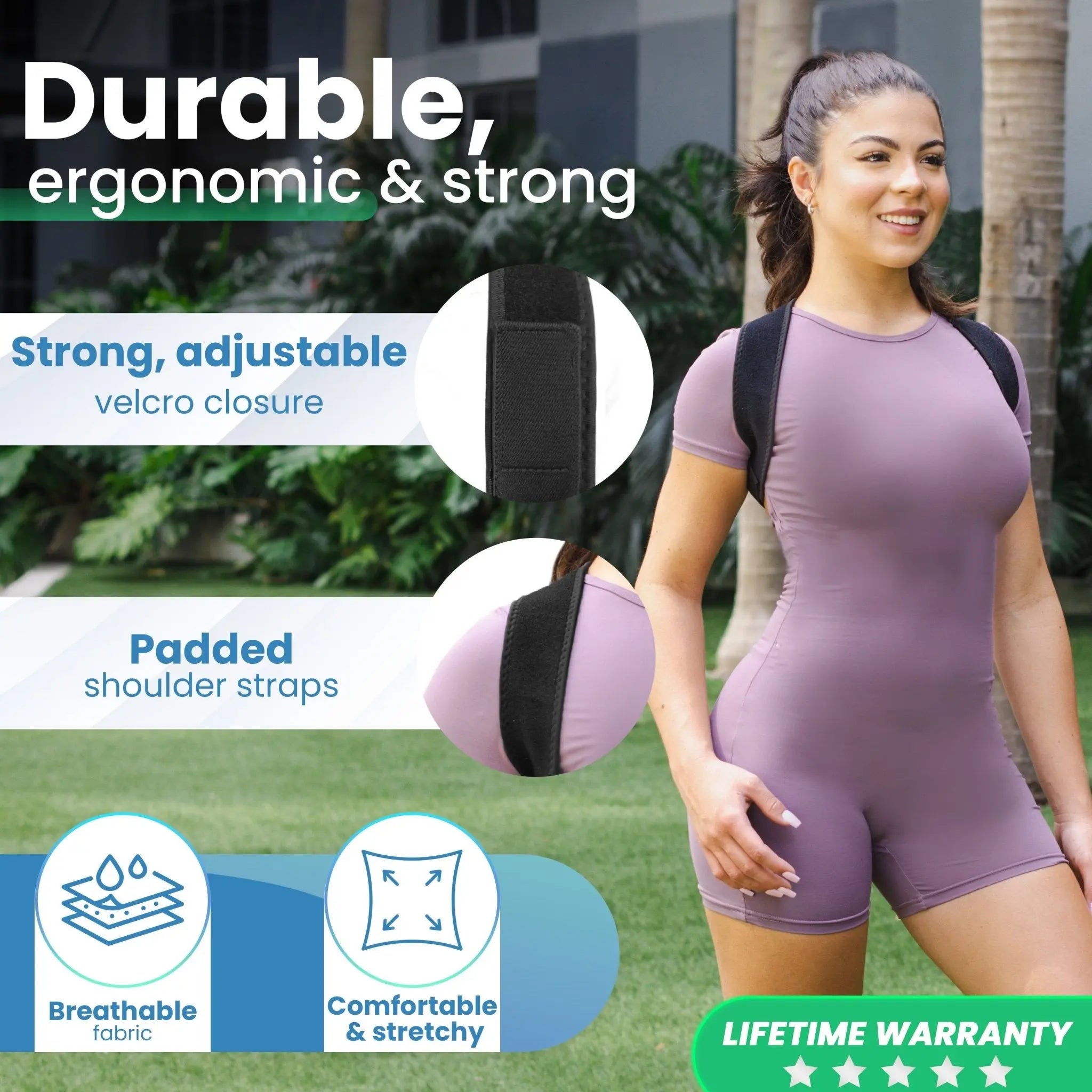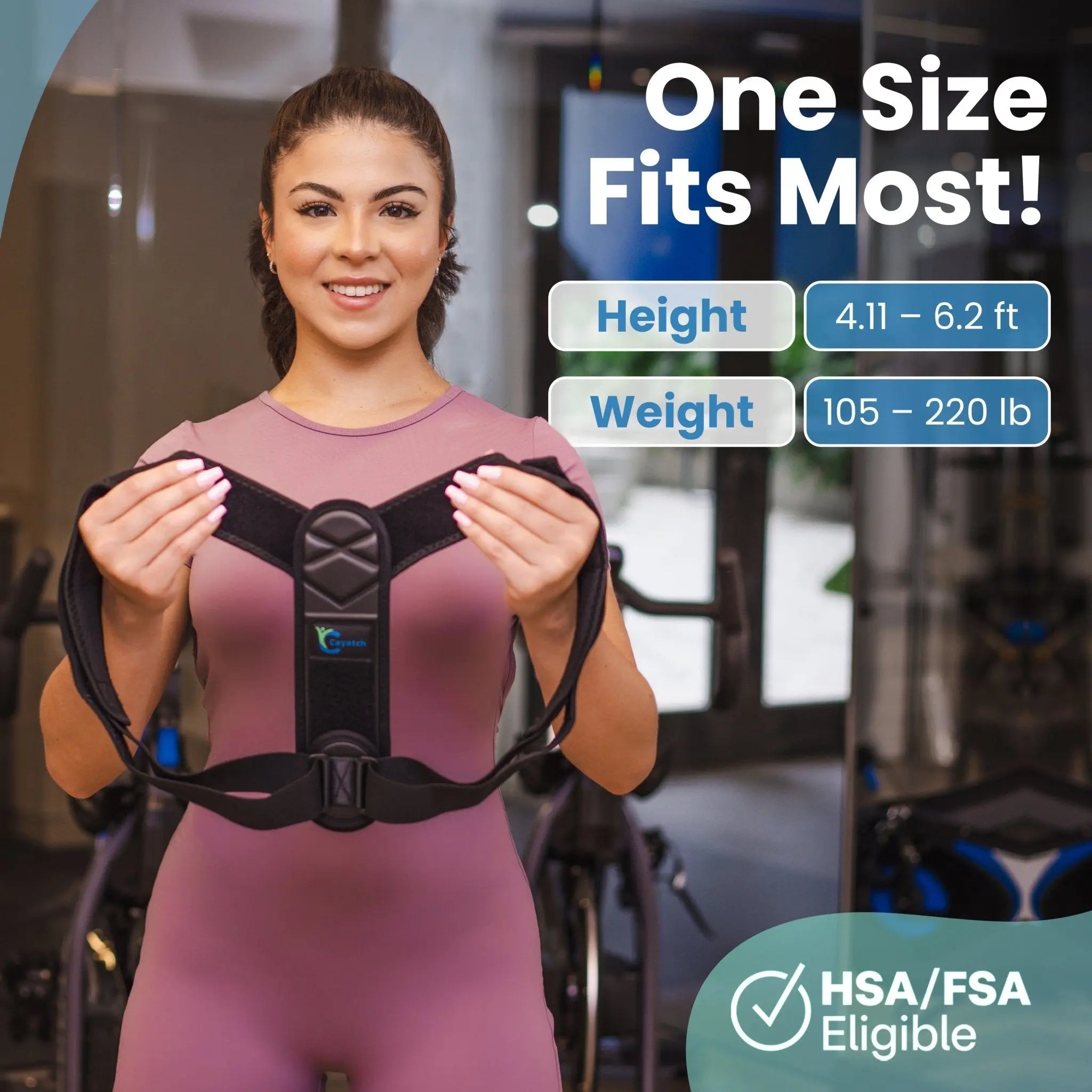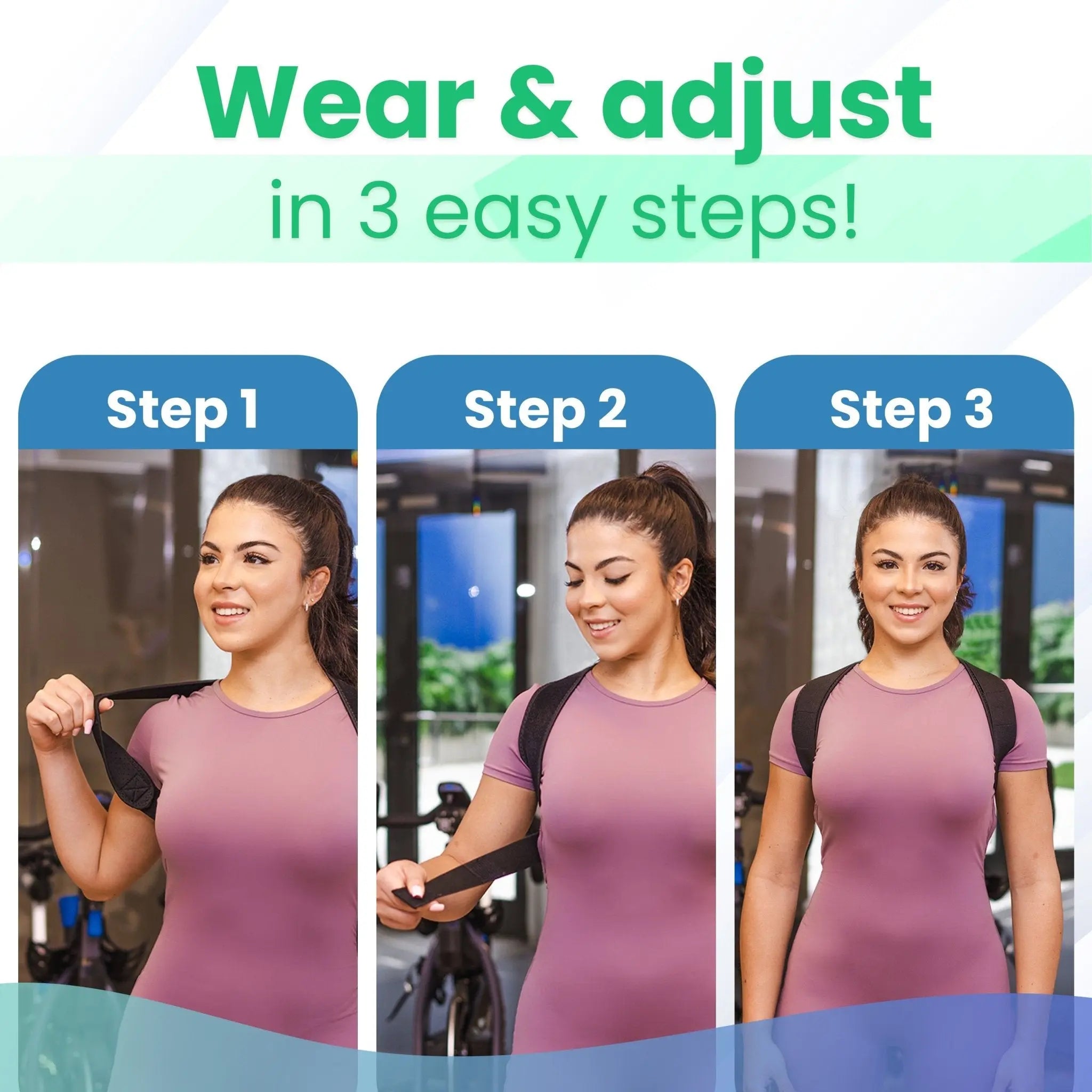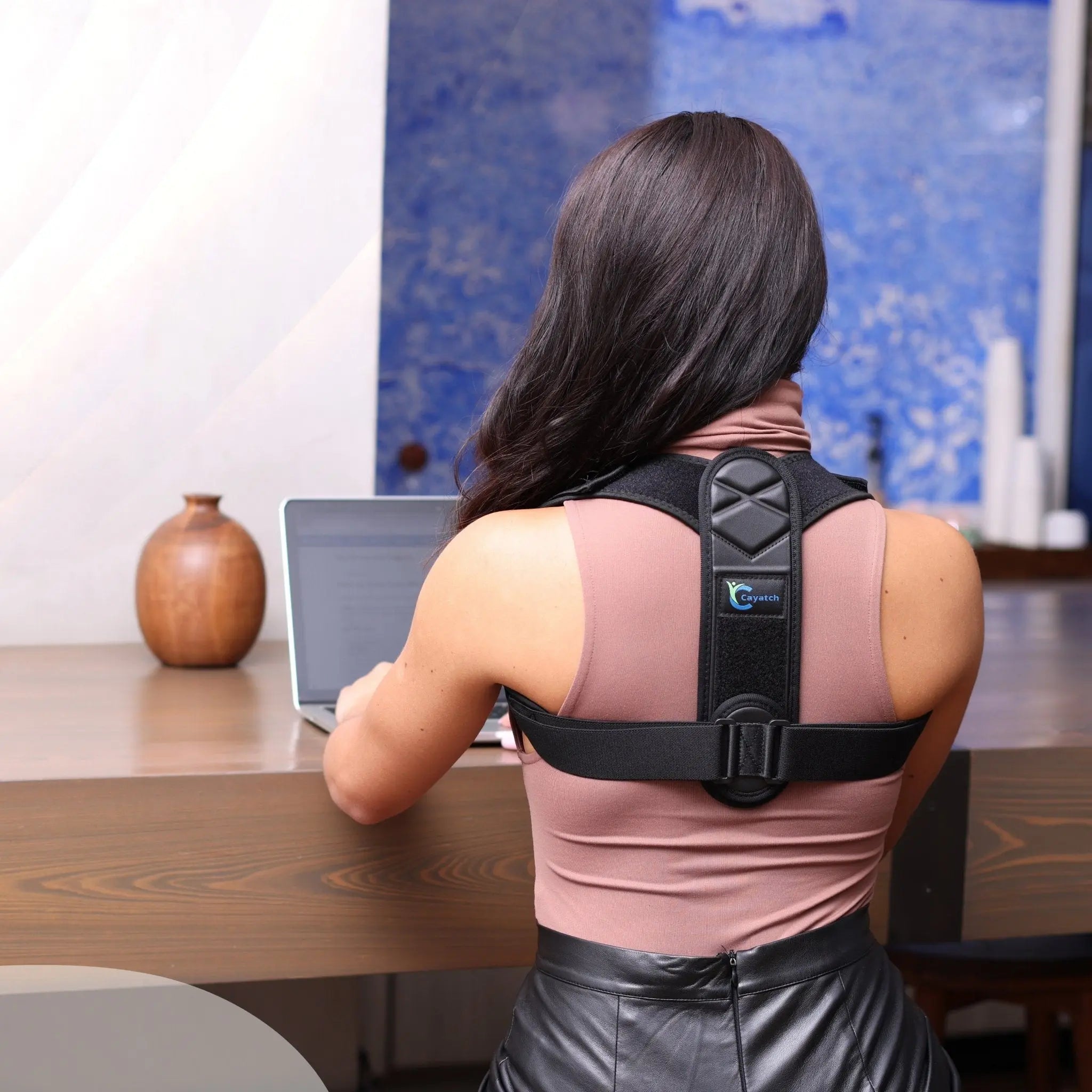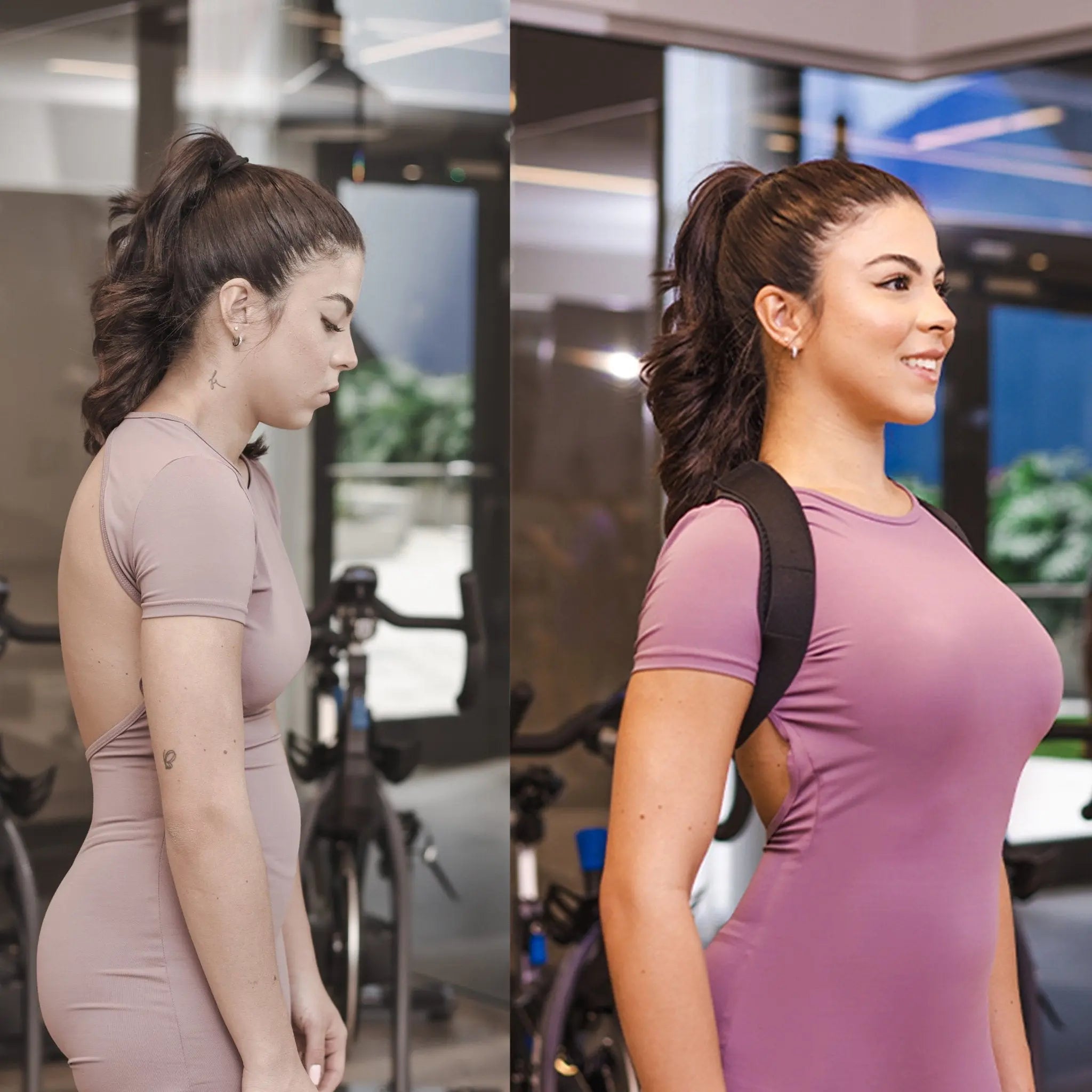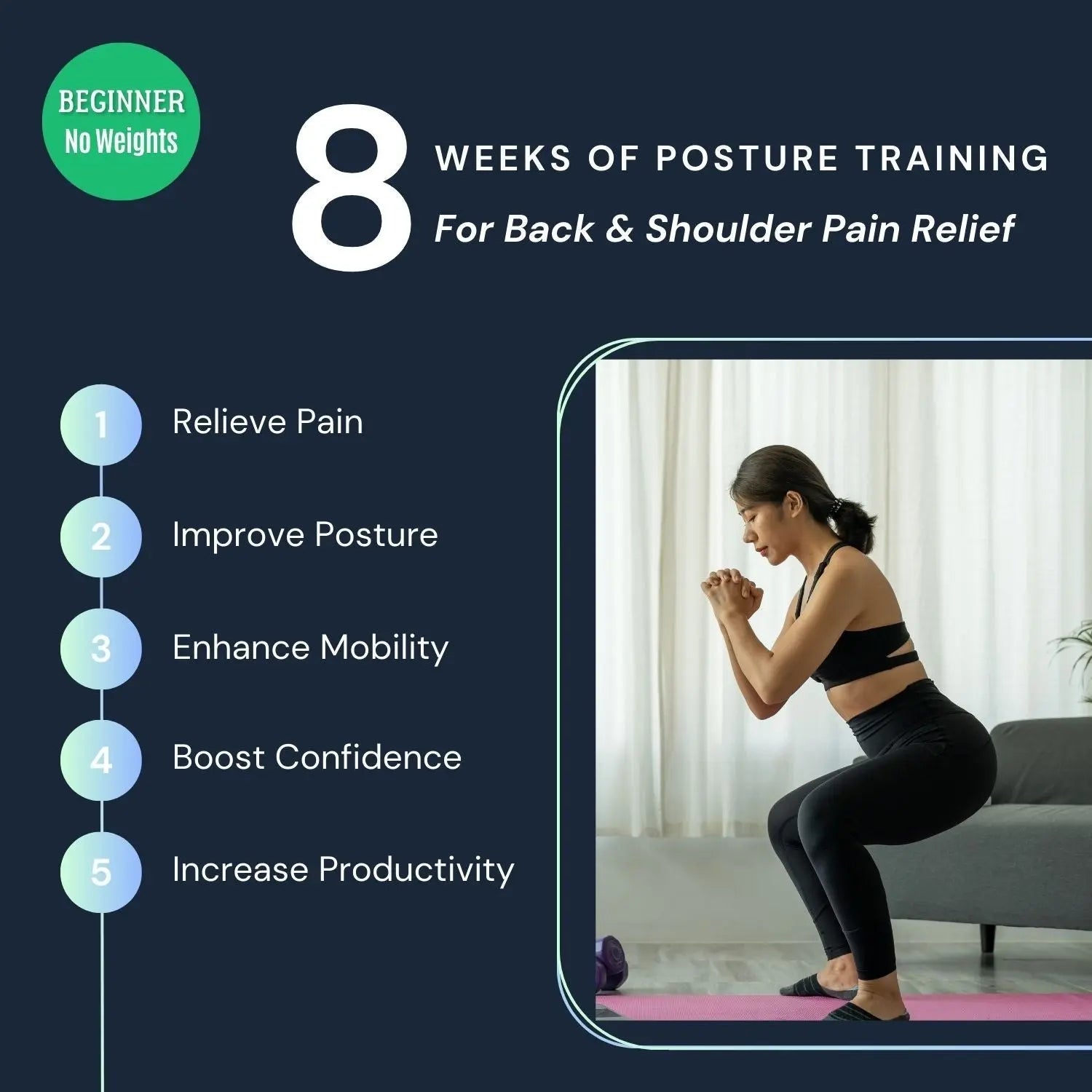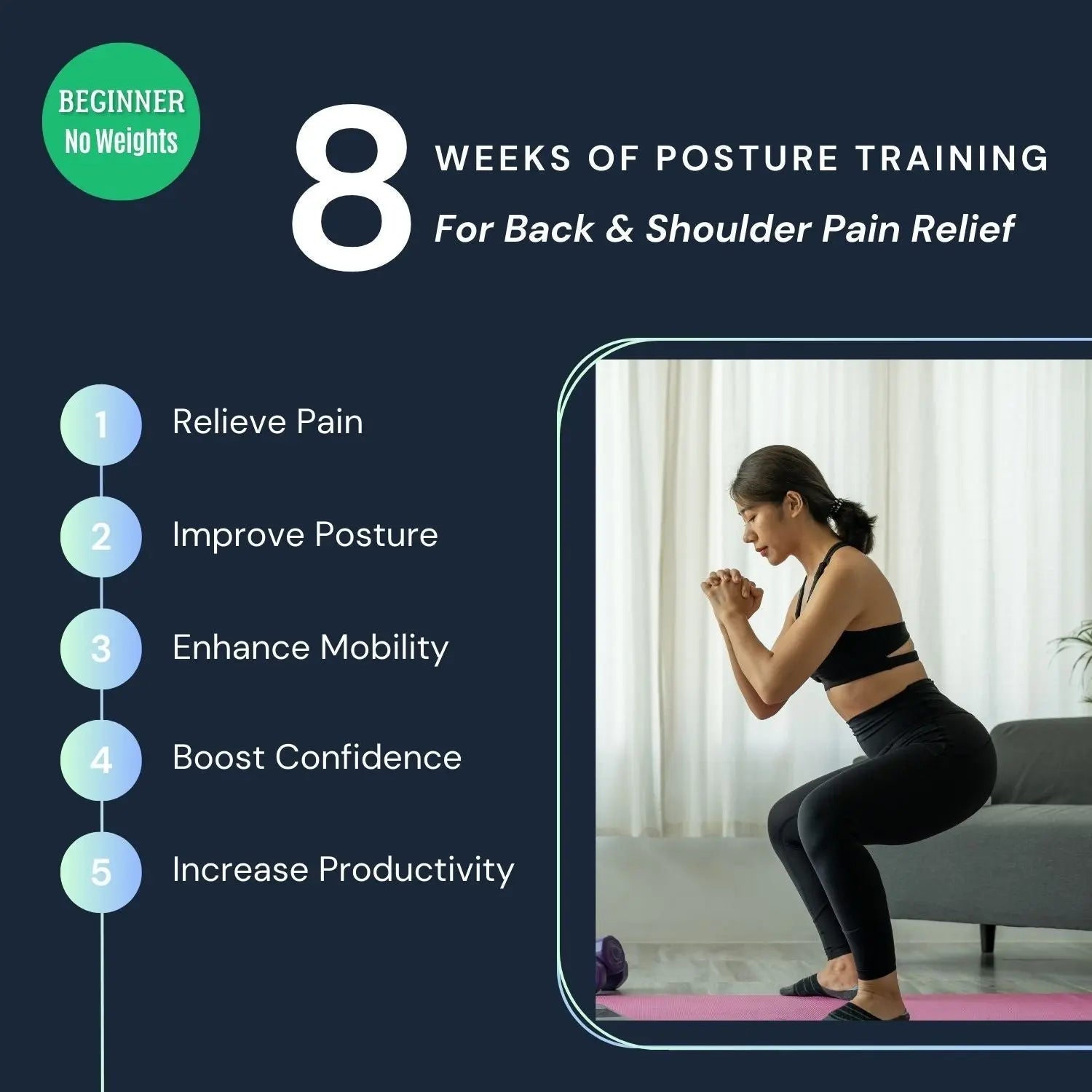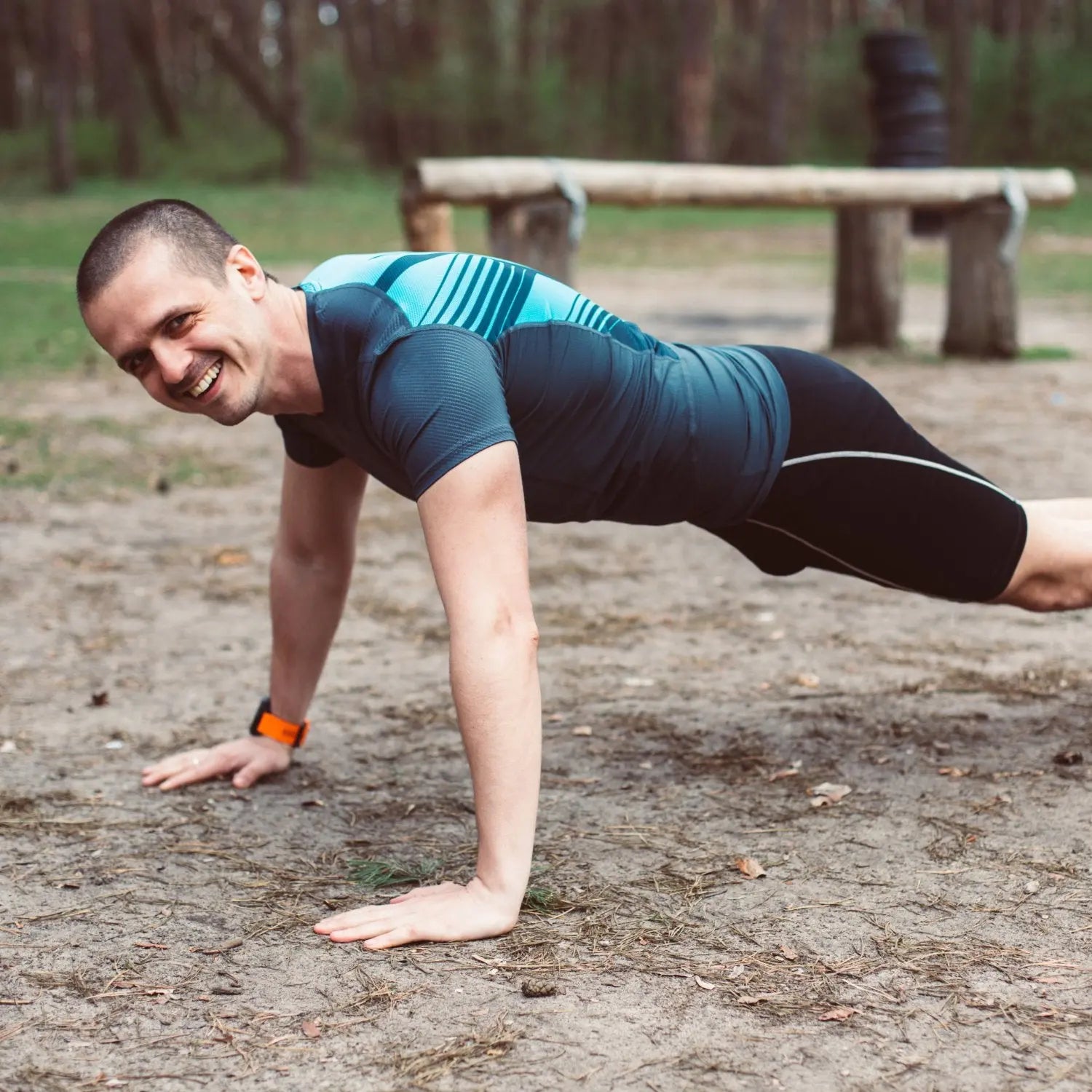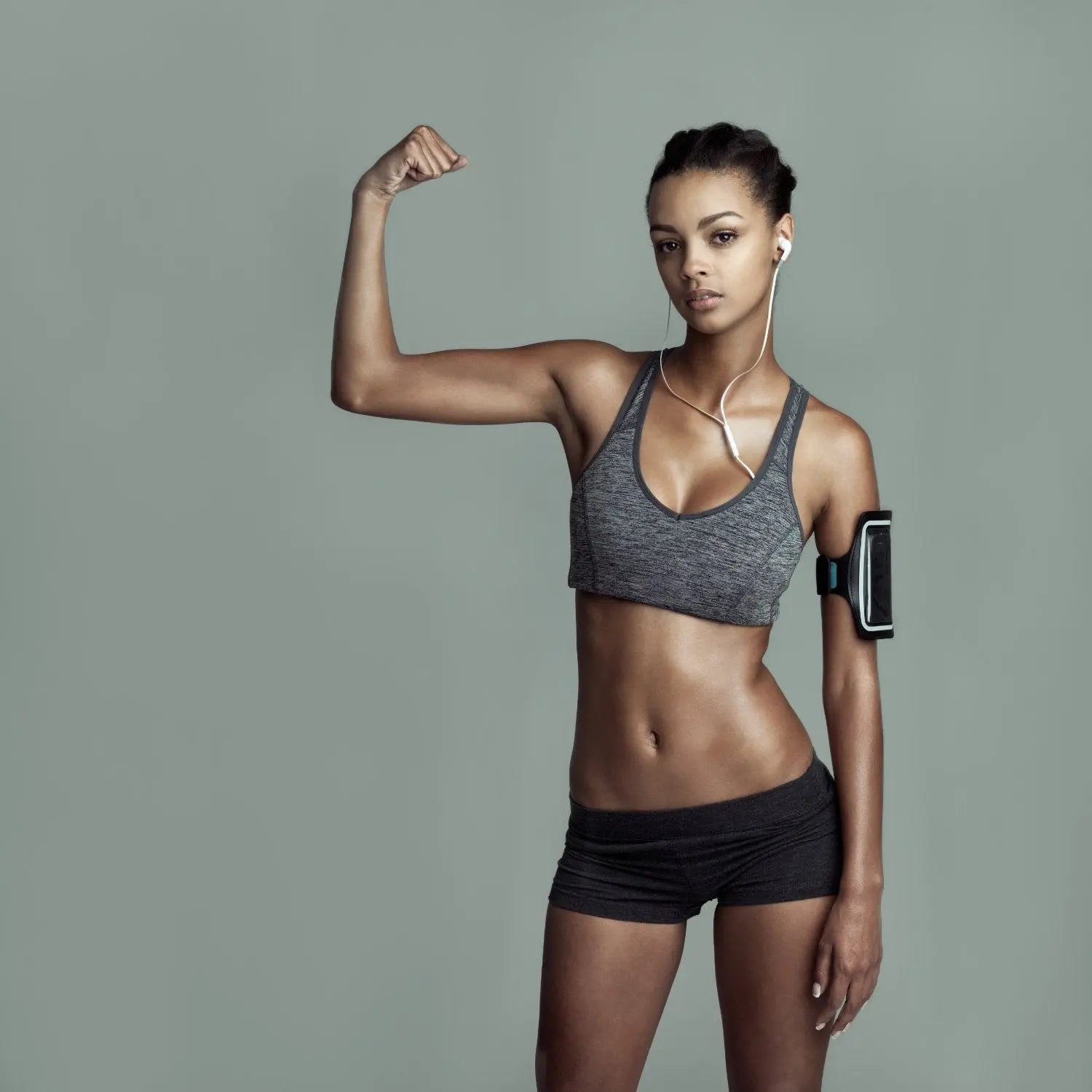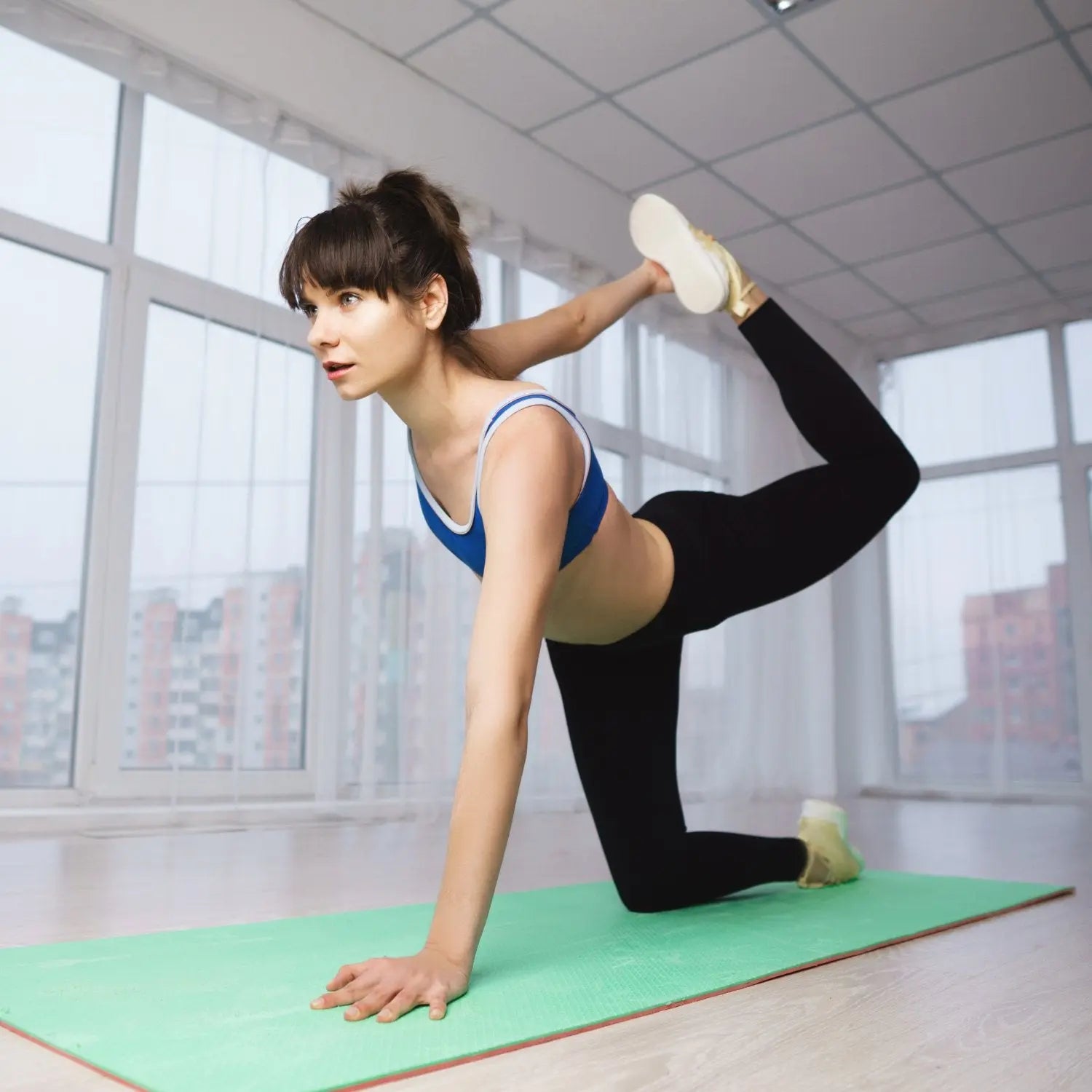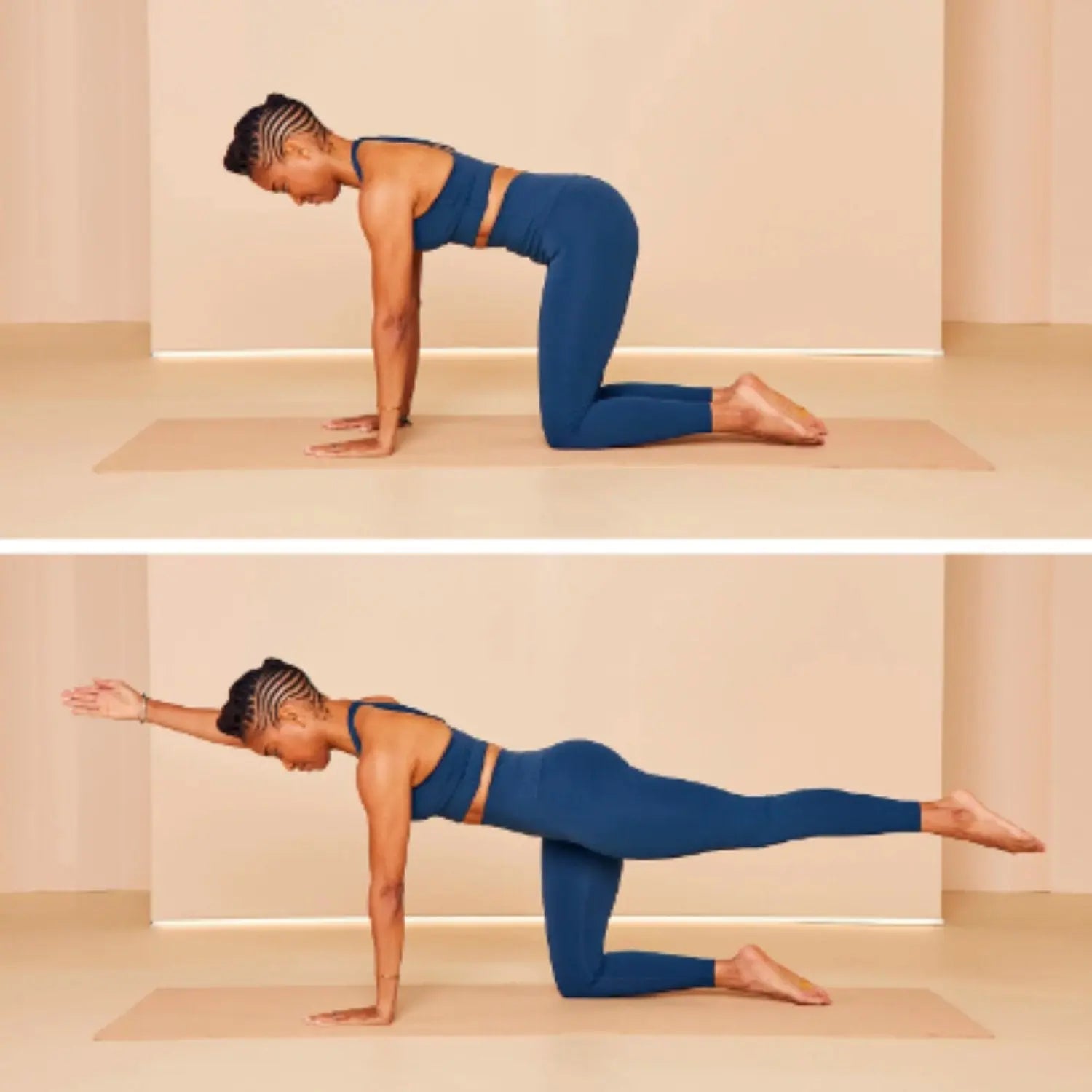Do Posture Correctors Really Work? Insights From Experts

Key Takeaways:
1. Types and Functionality: Posture correctors come in various forms, like back braces, posture shirts, and electronic devices, all designed to improve alignment and counteract the negative effects of slouching and poor posture habits.
2. Safe Use and Doctor's Advice: They should be used sparingly, no more than 15-60 minutes daily, and paired with exercises for long-term effectiveness. Doctors recommend them as a temporary tool for retraining posture.
3. Reasons to Use: Common reasons for using a posture corrector include poor posture habits, prolonged sitting, back pain, muscular imbalances, rehabilitation after injury, and improving overall body awareness.
4. Choosing The Right Posture Corector and Avoiding Side Effects: Selecting the right corrector is crucial. Consider comfort, fit, and quality to avoid side effects like skin irritation or restricted movement, and consult a healthcare professional if needed.
5. Q&A's addressed towards the end of the article- How long and how often should you wear a posture corrector each day?
- Do posture correctors work for scoliosis?
- Is it advisable to wear a posture corrector all day?
- How long does it take for a posture corrector to show results?
Introduction
Posture correctors refer to any device that aids in improving and maintaining proper posture. They can help improve posture by eliminating muscle imbalances and ensuring proper spinal alignment which can lead to less pain and improved quality of life.
There are so many different devices that advertise that they can improve posture, but the question arises if they truly work. The answer to the question of “do posture correctors really work” is YES but with some caveats.
This article dives into how and why posture correctors work, how to be safe with posture correctors, and potential side effects of posture correctors.
Different Types Of Posture Correctors Available

There are various posture correctors available that can assist in maintaining proper alignment. Below are the primary categories:
- Back Brace or Upper Back Corrector: Back brace are crafted to help align the shoulders and upper back, featuring adjustable straps that draw the shoulders back to deter slouching.
- Full Back Brace: Offering support from the upper back down to the lower back, this type of brace aims to realign the entire spine, tackling overall posture problems.
- Posture Shirt: Engineered with integrated panels, these shirts provide subtle support throughout the day, encouraging the adoption of a healthy posture.
- Electronic Posture Corrector: This advanced option, outfitted with sensors or vibration alerts, offers immediate feedback on your posture, prompting you to adjust to the correct stance as needed.
- Posture Corrector Bra: These bras come with built-in panels designed to enhance upper body posture, helping wearers to stand taller.
- Posture Corrector Vest: Similar in appearance to a vest, this corrector provides strong support for both the back and shoulders and can be worn inconspicuously under clothing.
How Do Posture Correctors Work?
Posture correctors in the most basic sense help you stand and sit up straight. In today’s era, we consistently find ourselves slumped over, whether it be at our computer or even when walking and looking down at our phones.
This slouching causes our shoulders to move forward and be put in an unhealthy way which causes undue stress on the vertebrae in the spine, which over an extended period can lead to osteoarthritis, neck pain, and back pain.

Putting your body in an unnatural position will eventually lead to pain so it is imperative to ensure proper posture, which is the function of posture correctors.
The prime responsibility of these devices is to align your spine and posture in the healthiest way, the benefits of which are explored here.
Are Posture Correctors Safe?
While posture correctors are deemed safe, adhering to specific usage guidelines is key to their effectiveness. Designed as adjuvants to exercises like these, they should not be used for more than 15-60 minutes daily to avoid risks like muscle weakness, skin irritation, and dependency.
To enhance safety and efficacy, it's important to pair their use with exercises aimed at strengthening the muscles critical for good posture. Proper fit is also essential to prevent discomfort or injury and consulting a healthcare professional is advisable to select an appropriate device and receive tailored exercise advice.
When used properly, posture correctors can be a valuable and safe tool in addressing posture issues, aiding in the development of a healthier, more natural posture over time.
Do Doctors Recommend The Use Of Posture Correctors?

“It’s fine to try a corrector if you need a posture refresher course, but wear it sparingly,” says Rahul Shah, MD, a board-certified orthopedic surgeon in Vineland, New Jersey. “When patients ask whether they can use them, I advise no more than an hour a day. Think of a posture corrector like a personal trainer: She can show you proper form, but she can’t do the reps for you.”
According to Christina Rodriguez, PT, DPT, OCS, cert. MDT, posture correctors are advised to be worn cautiously. Limit daily wear to an hour as prolonged use might lead to side effects, which are described below. Be mindful that it's not a permanent solution but consider correctors as training wheels.
Overall, these devices are most effective when combined with stretching and strengthening exercises. The goal is not just relying on the corrector but using them as a tool to maintain correct posture.
Potential Reasons Why You May Need a Posture Corrector?
Posture correctors are all about caring for your body. They can be a simple and effective solution to dealing with poor posture.
Here are a few potential reasons why you might need these devices.
1. Poor Posture Habits

Individuals often develop poor posture habits from a young age due to slouching or hunching over while sitting or standing. These habits can lead to discomfort and misalignments in the body's posture.
A posture corrector can serve as a physical reminder to maintain an upright position, gradually helping to correct these ingrained habits.
2. Prolonged Sitting Patterns
With the increasing prevalence of desk jobs and screen time, many people spend hours in a seated position, leading to strain and poor posture.
A posture corrector supports the back and shoulders, encouraging proper alignment and reducing the strain caused by sitting for extended periods.
3. Back Pain

Chronic back pain is a common ailment that can be exacerbated by poor posture. Using a posture corrector can provide the necessary support to the spine and muscles, alleviating back pain and preventing further discomfort.
4. Prevention of Muscular Imbalances
Incorrect posture can lead to muscular imbalances, where certain muscles become weakened, and others overstrained. Posture correctors help evenly distribute muscle use across the body, preventing these imbalances and promoting muscular health.
5. Rehabilitation After Injury
After an injury, particularly one that affects the spine or back muscles, a posture corrector can play a crucial role in the rehabilitation process. It provides support and ensures that the body maintains correct alignment, facilitating healing and preventing further injury.
Maintaining a correct sitting or standing position increases muscle strength and activates postural muscles. Consequently, our skeleton is better equipped to endure the daily stresses of life.
6. Increased Awareness
Many people are not consciously aware of their posture throughout the day. A posture corrector can increase bodily awareness, reminding the wearer to adjust their posture regularly.
This heightened awareness is essential for making long-term improvements to posture.
7. Prevention of Health Issues
Poor posture can lead to a range of health issues, including respiratory problems, circulatory issues, chronic pain, and even blood pressure and heart rate irregularities. By encouraging correct alignment, posture correctors can help prevent these conditions before they start.
8. Enhanced Confidence and Appearance
Good posture is not only healthy but also affects how others perceive us. An upright posture can boost self-confidence and make a positive impression on others. Posture correctors can assist in achieving this poised appearance.
Read: Why Posture Is Important In Communication?
9. Support During Physical Activities
Correct posture is vital during physical activities to prevent injury and ensure that movements are performed efficiently. A posture corrector can provide the necessary support during exercise, sports, or other physical activities, enhancing performance and reducing the risk of injury.
10. Office Ergonomics

The ergonomic setup of a workstation is crucial for preventing posture-related issues.
However, even with the best setup, individuals may still find themselves slouching or leaning forward. A posture corrector complements office ergonomics by ensuring that the spine remains aligned, reducing the strain on the back and neck during long periods of work.
How To Choose The Best Posture Correctors

Choosing the right posture corrector is like finding the perfect sidekick for your body.
Let's follow the below tips to make this important choice in a simple way.
1. Identify Your Specific Needs
Determine whether you need support for the upper back, lower back, or both. Consider your daily activities and the extent of correction needed. This will help narrow down the options to those that address your needs.
2. Consider Comfort
A good posture corrector should be comfortable enough to wear for the recommended duration without causing skin irritation or discomfort. Look for materials that are breathable and soft against the skin.
3. Ease of Use
If a posture corrector is too complicated to put on or take off, you're less likely to use it regularly. Choose a design that is straightforward, so daily use is not a hassle.
4. Size and Fit
Inspect the quality of materials and craftsmanship. Durable materials and strong stitching indicate a posture corrector that will withstand regular use.
5. Quality of Construction
You want a reliable and long-lasting invasive brace that's like a sturdy companion. Check the stitching, materials, and overall construction. Quality matters for a companion that will stick around.
6. Adjustability

An adjustable posture corrector can be tailored to fit your body perfectly and can be adjusted as your posture improves or as you wear different clothing.
7. Reviews and Recommendations
Read reviews and seek recommendations from users with similar needs. This real-world feedback can provide insight into how effective a posture corrector is in various scenarios.
8. Ease of Maintenance
Look for a posture corrector that is easy to clean and maintain. A machine-washable design, for example, is convenient and ensures the corrector remains hygienic with regular use.
9. Gradual Adjustment
A posture corrector that allows for gradual adjustment can help your body adapt to the changes without causing discomfort. This feature is particularly important for those who are using a corrector for the first time or have significant posture issues to address.
10. Consult with a Healthcare Professional
A healthcare professional can assess your posture and recommend a posture corrector that suits your specific needs. They can also advise on the correct usage to avoid potential side effects.
Importance of Comfort, Adjustability, and Quality

Posture correctors should prioritize comfort. A comfortable corrector encourages consistent use, which is essential for effective posture improvement. Ill-fitting devices can lead to irritation, discomfort, and reluctance to wear them.
Comfortable correctors seamlessly support your posture throughout the day and adjustability allows you to customize the corrector to your body's shape and comfort preferences.
Quality correctors are constructed from durable materials that provide long-lasting support. The design should ensure proper alignment without causing discomfort or overcorrection.
Sticking with trusted brands guarantee that the corrector functions as intended while minimizing negative side effects.
Posture Correctors Side Effects and How to Avoid

While posture correctors are considered safe, there can be some side effects if the posture corrector is not the right fit for you.
1. Skin Irritation
- Side Effects: Prolonged wear of posture correctors can cause skin irritation or rashes, especially if the material does not breathe well or if the corrector is too tight.
- Avoidance: Ensure the posture corrector is made from breathable, hypoallergenic materials and fits properly. Regular breaks and proper hygiene can also prevent skin irritation.
2. Restricted Movement
- Side Effects: Some posture correctors may restrict movement, leading to discomfort or even discouraging the wearer from moving naturally.
- Avoidance: Choose a posture corrector that allows for a full range of motion. It should support correct posture without limiting movement, ensuring that you can perform daily activities comfortably.
3. Breathing Difficulty
- Side Effects: Tight posture correctors can compress the chest, making it difficult to take deep breaths. This can lead to shallow breathing and reduced oxygen intake.
- Avoidance: Adjust the posture corrector so that it is snug but not too tight. Practice deep breathing exercises to ensure that wearing the corrector does not negatively impact your breathing.
4. Digestive Issues
- Side Effects: Excessive tightness around the abdomen from wearing a posture corrector can interfere with digestion, potentially leading to discomfort or digestive issues.
- Avoidance: Ensure the posture corrector is not overly tight around the stomach area. Wear the corrector for shorter periods and avoid wearing it immediately after meals to allow for proper digestion.
5. Nerve Compression
- Side Effects: Incorrectly fitted or overly tight posture correctors can compress nerves, leading to tingling, numbness, or even pain in the affected areas.
- Avoidance: It's crucial to choose a posture corrector that fits well and to adjust it carefully to avoid putting pressure on nerves. If you experience any of these symptoms, loosen the corrector or take a break from wearing it.
Are Posture Correctors Worth It?

Posture correctors are absolutely worth it if you find yourself constantly slouching and have difficulty maintaining adequate posture.
As long as you are careful with the amount of time worn each day, the benefits of posture correctors outweigh the risks that can come along with it.
The key?
Consistency.
Regular use of a posture corrector can be compared to nurturing a plant. Both require consistent care and time to flourish.
Posture correctors don't offer a universal solution, but they can be incredibly beneficial for some.
The key to maximizing their effectiveness lies in combining them with other lifestyle modifications. Doing this consistently over time will lead to a healthier life, which in turn will be a happier life.
Frequently Asked Questions (FAQs)
How long should I wear a posture corrector each day?
Adjust the duration according to your needs and comfort. Start with 15–30 minutes and gradually increase the time. Wearing it for an hour daily is ideal but avoid more than this.
Do posture correctors work for scoliosis?
While posture correctors can help, they should not be the sole solution. Consult your doctor, who may recommend correctors as part of a broader treatment plan that may include exercises and other interventions.
Is it advisable to wear a posture corrector all day?
Constant use of a posture corrector may lead to muscle weakening and discomfort. It's recommended to use a posture corrector moderately alongside exercises and ergonomic adjustments for long-term posture improvement.
How long does it take for a posture corrector to show results?
The time required to see results varies. Consistent use of the corrector, in conjunction with exercises and mindful posture practices, is key to achieving long-term improvement.
Wrapping It Up
In conclusion, posture correctors emerge as a resource for those grappling with the challenges of poor posture, offering a blend of support and guidance towards a healthier alignment. As we've explored the various facets of posture correctors, from their types to their functionality, potential reasons for use, and careful selection, it's clear that these devices hold the promise of alleviating back pain, enhancing overall well-being, and boosting confidence through improved posture.
However, it's crucial to approach their use with mindfulness. The experts' insights highlight that posture correctors are not a panacea but a tool to be used judiciously, complementing a holistic strategy that includes exercise, ergonomic practices, and lifestyle adjustments. The importance of consulting healthcare professionals cannot be overstated, ensuring that the device chosen meets your specific needs without unintended consequences.
Embrace posture correctors as part of a broader commitment to your health, integrating them with a balanced approach to physical wellness. Remember, the journey to better posture is a marathon, not a sprint, requiring patience, consistency, and a proactive stance on self-care. By navigating the use of posture correctors wisely, you can step towards a future where improved posture is not just a goal but a lived reality, enhancing your quality of life and opening the door to newfound vitality.








